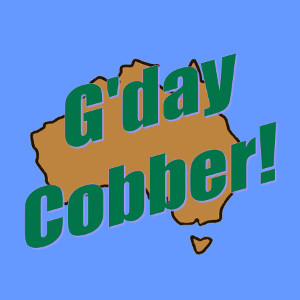
The expression of words in an Australian accent has been described as “Strine” (which is the stereotypical way that Aussies say the word “Australian”). The vernacular of Australian English is a dialect which is quite distinct in its usage. The “Australian language”, or “lingo”, is a unique expression of Aussie culture.
Please note that some of the Australian terminology listed herein may be perceived as offensive, whether regarded as swearing, sexist, or racist (it should be noted that some four letter words appear in this list, as they appear prominently in the Australian vernacular and vocabulary). If you do not wish to be offended, then do not read any further. Any such words or phrases contained herein are listed here in an academic role, as a documentation of cultural expressions, with regards to establishing a historical record of language usage. We do not accept any responsibility for anyone who is offended by any words or phrases listed here.
It is believed that most of these terms are in current widespread use; however, the usage of some terms may be limited. The usage of colloquialisms, jargon, idioms, and slang can vary, depending on the user’s area, age, field of activity, and socio-economic group; also, someone’s family, friends, workmates, and acquaintances can be influential regarding the terminology that one uses.
Learn the Strine, and you’ll be fine.
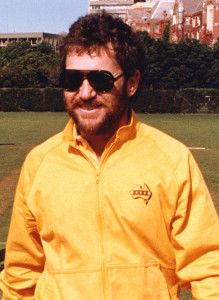
Abo = Abbreviation of Aboriginal; not necessarily intended as a derogatory term, but in modern times it is now almost always regarded as derogatory, even if not intended as such.
Acca Dacca = AC/DC (the rock band). Also spelt “Accadacca”.
Acker = Jason Ackermanis, footballer.
ackers = Acne, pimples.
aerial ping-pong = Australian Rules Football; a reference to the high kicks and leaps (such as in marking the ball).
aggro = An abbreviation of “aggressive”; e.g. “He thought I took his parking spot; he hopped out of his car, and was acting all aggro”.
air con = An abbreviation of “air conditioning” and “air conditioner”.
Albo = Anthony Albanese, who became the Prime Minister of Australia in 2022.
all alone like a country dunny = Someone on their own, or someone who is lonely.
all over bar the shouting = A reference to something which is not yet finished, but where the outcome is certain.
all over the place like a mad woman’s shit = A real mess, untidy; a person who is a bit flighty, someone who hasn’t got their act together.
amber fluid = Beer; a reference to its colour.
ambo = Ambulance medic (plural: “ambos”).
Am I ever gonna to see your face again? = The title (and main chorus line) of a song by The Angels; in public performances, it is common practice for the crowd to follow the line by jumping in with the response “No way, get fucked, fuck off!”, chanted in tune with the music. This is a well-known part of Australian pub culture. [Technically, the song’s title doesn’t have a question mark, although it is considered to be there by implication.]
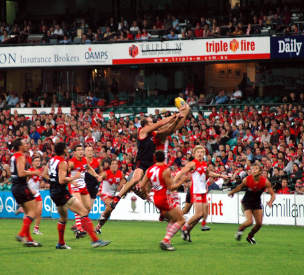
— Leaping up to take a mark
Anglos = Those of British ethnic descent. Not necessarily intended as a derogatory term, but in modern times it may sometimes be regarded as derogatory even if not intended as such. Singular: “Anglo”.
ankle biter = A young child. [See also: tacker]
Anzac = Originally a reference to the Australian and New Zealand Army Corps (ANZAC), it also refers to the members thereof, and is sometimes applied to Australian men in a stereotypical sense (rugged, tough, etc.). Whilst the word began as an acronym, with “ANZAC” correctly spelt with capital letters, it has a modern usage as a noun, with a meaning wider than that of the ANZAC military organization, and it is therefore now also correctly spelt with just its initial letter capitalised, i.e. “Anzac”.
A over T =Arse over tits, i.e. falling head over heels, e.g. “He fell when walking down the sand dune at the beach, and went A over T”.
Apple Isle = Tasmania. Derived from the large apple-growing industry in Tasmania.
Apple Islanders = Tasmanians. Derived from the large apple-growing industry in Tasmania.
apples = “She’ll be apples”, “It’s apples”, or “Everything’s apples”. Meaning everything will be alright. Taken from the rhyming slang “apples and spice” for “nice”.
arced up = A reference to someone being angry or upset; e.g. “He arced up when he was told he had to leave the pub”, “Don’t arc up on me, I had nothing to do with it”. Possibly derived from arc welding, whereby sparks fly out (“sparks flying” refers to an argument or fight).
arse = Get rid of; e.g. “He got the arse from work the other day” (i.e. was fired; got the sack), “his girlfriend didn’t like him any more, so she gave him the arse”. Similar to giving someone the boot, or giving someone the flick.
arsed = Don’t feel like doing something, not in the mood to do something, can’t be bothered; e.g. “I can’t be arsed to cook dinner tonight”. Similar to “fussed”.
arseholes = People who are considered to be not nice; e.g. “they’re a bunch of arseholes”.
arsey = Someone who is considered lucky; e.g. “he’s an arsey bastard”.
arvo = An abbreviation of “afternoon”.
Asian = In an Australian context, the word “Asian” normally refers to someone of Eastern Asian ethnicity (from north-east, east, and south-east Asia, e.g. from China, Indonesia, Japan, Korea, Singapore, and Tibet). This differs from the UK usage of the term, where the word “Asian” usually refers to someone of Central Asian ethnicity (e.g. from Bangladesh, India, Pakistan, and Sri Lanka).
as ugly as a hatful of arseholes = A negative reference to someone’s looks.
as useless as an ashtray on a motorbike = Someone or something that is not useful.
as useless as tits on a bull = Someone or something that is not useful.
Auntie = A reference to the ABC (originally the Australian Broadcasting Commission, later renamed the Australian Broadcasting Corporation).
Aus = An abbreviation of the word “Australia”. Also rendered as “Oz”.
Aussie = [1] An Australian; usually with patriotic or nationalist overtones, being a reference to “a fair dinkum Australian”.
Aussie = [2] Australia, or something from Australia; e.g. “Aussie is the best country in the world”, “Holden is an Aussie car”.
Aussie battlers = Australians who are not rich, battling against life’s odds.
Aussie Cossie = Swimwear; Speedos (Speedos are an “Aussie cossie”, as they are regarded as good Australian-designed bathers, i.e. swimming costumes); also rendered as “the Great Aussie Cossie”.
Aussie Rules = Australian Rules Football.
Aussie salute = Waving away flies from your face (same as “Aussie wave”).
Aussie wave = Waving away flies from your face (same as “Aussie salute”).
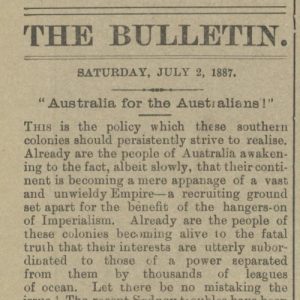
Australia for the White man = A nationalist catchphrase; it was the motto of the influential publication The Bulletin from 1908 until 1960.
’av a go = The Strine pronunciation of “Have a go”, i.e. give something a try, e.g. “Get on the bike, ’av a go, it won’t bite ya”. Can also be used when inviting someone to have a fight; e.g. “You reckon you can beat me, do ya? Well, ’av a go, ya mug!”
avo = An abbreviation of “avocado”.
awkward as a Chow on a bike = Acting in an awkward manner; from a negative reference to a Chinese person on a bike.
B&S = Bachelor’s and Spinsters; being a reference to a “Bachelor’s and Spinster’s Ball”, a dance party arranged for single people, or humourously referring to a gathering that is said to look like one. Not to be confused with “BS” (meaning “bullshit”).
back blocks = Referring to a place that is far from the city, or far from town; e.g. “they’re living out in the back blocks”.
back of Bourke = A long way out from civilization (Bourke was once considered to be the remotest town in New South Wales). See: IAC list on Trove.
bag of fruit = Rhyming slang for “suit” (can also be abbreviated to “bag”). Rarely heard nowadays.
bail = To leave a gathering, group, or party; e.g. “The party’s just getting started, don’t bail on us now!”
bailed up = Originally a reference to the demand made by bushrangers (who would say to their victims “Bail up!”, similar to “Stand and deliver!”), but now refers to someone being stopped, usually in an inconvenient manner or for a disagreement (to corner someone); e.g. “he bailed her up to talk about her decision”.
ball tearer = Something that is really good, “that was a real ball tearer of a game”.
Balmain folk dancing = Putting the boot in, when a fighting opponent is on the ground; from the Sydney suburb of Balmain, once considered to be a tough area.
Balmain basket weavers = Inner-city “trendies”, or left-wingers; from the Sydney suburb of Balmain, once a poor suburb, but later populated by “middle class trendies”.
Banana Benders = Queenslanders; as Queensland is the state where a lot of bananas are grown, being located in the tropical area of Australia. Within the term there is an implied joke about Queenslanders spending their time bending the bananas before they are sent off to be sold.
Bananaland = Queensland, so-named as a lot of bananas are grown in that state, being located in the tropical north of Australia.
Bananalanders = Queenslanders, i.e. people from Bananaland (a slang name for Queensland).
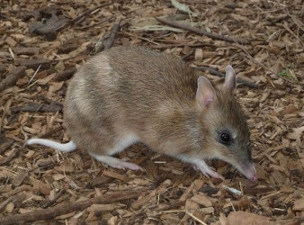
Bandywallop = A made-up place name for somewhere very far away, “up country”; examples of which include Bandywallop, Bullamakanka, and Woop Woop. Geebung and Speewah are also used in a similar manner, although these are names of actual places (both in Queensland); in this regard, their situation is similar to Timbuctoo, located in Africa (formerly part of the French Sudan colony; now in Mali, and spelt Timbuktu). These place names are typically used in tall tales, such as in the story “Crooked Mick of the Speewah”.
bangs like a dunny door = A female who is sexually promiscuous; e.g. “She bangs like a dunny door”. An alternative usage is “She bangs like a shithouse door”. The phrase has several longer variations, each ending with a reference to a strong wind, such as “She bangs like a dunny door in a cyclone / hurricane / gale / high wind / Southerly / storm / wind”.
banger = A sausage; e.g. “Put another banger on the barbie” (“Put another sausage on the barbeque”).
barbie = [1] Abbreviation of barbeque.
Barbie = [2] Abbreviation of Barbara. Can also be used to refer to any woman (similar to “sheila”).
barney = To have a big disagreement, or a fight; e.g. “they had a real barney over that one” (sometimes spelt as “barny”).
Barra = Abbreviation of barramundi (a type of fish).
barrack = To cheer, yell out in support of a person or team; to support a sports team or entity in general.
barracker = Someone who barracks for a person or a group (i.e. someone who supports them), usually used in regards to people barracking for a football team; e.g. “he barracks for Collingwood”.
batching = Living as a bachelor; e.g. “He’s moved out of home and batching it now”.
bathers = Swimming costume; also known as a “cossie” (short for “costume, i.e. swimming costume) or Speedos (from the brand-name “Speedos”, manufacturer of bathers).
battler = Someone who is not rich, battling against life’s odds. Used in the term “Aussie battler”.
Bazza = Barry. This is part of the Australia tradition of giving various names a “zza” suffix; e.g. Bazza, Gazza, and Shazza (Barry, Gary, and Sharon).
beaut = Something that is great; e.g. “That’s beaut, mate!”, “You beaut!”, “What a beaut!”, or “You bewdy!”; may be called out when something good happens. Derived from “beautiful”.
beauty = Good, great, something of good quality; e.g. “That’s a nice car you’ve got there; she’s a beauty alright”.
beer o’clock = A way of saying that it’s time for a beer.
bee’s dick = Something very small, or used as an indication of a short distance or a close call; e.g. “he missed crashing into the truck by a bee’s dick”, “he was a bee’s dick away from being sacked”. Derived from the imagined length of a bee’s genitalia.
bee’s knees = Something very good. Often used in a negative sense regarding a person with an over-inflated opinion of themselves; e.g. “He really thinks he’s the bee’s knees, doesn’t he?”
beeswax = Business; e.g. “Don’t bloody stick ya beak in; it’s none of your beeswax”.
bender = A drinking spree.
berko = To go berserk, to be really angry and out of control; e.g. “he went berko when he was told he was sacked”.
best thing since sliced bread = Something that is very good, a great invention. Derived from the innovation of bakers selling pre-sliced bread, instead of whole loaves, which consumers had to cut up themselves with a bread knife.
bewdy = An exclamation regarding something that is great; e.g. “You bewdy!”; may be called out when something good happens. Derived from “beautiful”. “Bewdy, Norm!” was an advertising catchphrase in the 1970s.
beyond the Black Stump = Somewhere that is far away from civilisation. Similar to “back of Bourke”.
bible basher = Someone who is outspokenly Christian (similar to a “bible thumper”).
big ask = Something that is difficult to achieve, or a big favour; e.g. “That’s a big ask”.
big bickies = A lot of money; can also be spelt as “big bikkies”.
bickies = Biscuits (“cookies” in American terminology); can also be spelt as “bikkies”. Singular: “bickie” (the singular is also spelt as: “biccy”, “bicky”, “bikkie”, “bikky”).
big-noting = When someone puffs up their own importance; e.g. “He was big-noting himself to impress that girl”.
big smoke = The city (can be used to refer to any big city).
bikkies = Biscuits (“cookies” in American terminology); can also be spelt as “bickies” (singular: bickie, bikkie).
billabong = A dead-end water channel which forms a lagoon or pool; a backwater channel formed by water left behind after a river has flooded and then receded, or after a river has changed course; a creek bed which only contains water during the rainy season; a dried-up creek bed.
billy = A metal can or tin (usually with a wire or steel handle), used for boiling water over a camp fire (also known as a “billy can”).
billy lid = Rhyming slang for “kid” (child); the plural is “billy lids”.
billy cart = A cart used by children; often such a cart is used for racing down hills (refers to a small cart that could be pulled along by a billy goat).
bingle = A minor collision or crash, usually a car crash; e.g. “they had a bit of a bingle on the main road”.
bite your bum = An emphatic way of telling someone “No!” or disagreeing with them; e.g. “Go bite your bum, chum”.
bitser = A dog of mongrel pedigree; from being bits of this pedigree and bits of that pedigree.
bitumen = A tarred road; from the bitumen used on roads.
blind Freddie = A phrase used in comparison to establish something that is obvious or easy; e.g. “it was so obvious that even Blind Freddie could have seen it”, “even Blind Freddie could have done it”.
bloke = A man. On the other side of the coin, a woman is known as a “sheila”.
blood’s worth bottling = A compliment; e.g. “She’s such a great woman, her blood’s worth bottling”; hence the term “bottler”.
bloody = An intensifier term, used for emphasis; e.g. “That’s a bloody good one!” (i.e. “That one is very good”). Although the word “bloody” is not Australian in origin, in earlier years its widespread usage was regarded as particularly Australian (something that was complained about by English visitors to the Land Down Under). It was the subject of a well-known poem, “The Great Australian Adjective”, written by W. T. Goodge (1897), and was the main feature of another well-known poem, “The Australaise”, written by C. J. Dennis (1913). See also: “The Great Australian Adjective” (an article from 1900).
bloody oath = Too right, that’s the truth. An exclamatory oath which is used to emphasise a point, usually regarding used as an affirmation or a confirmation; e.g. “Yeah, bloody oath it is, mate!”
bloody ripper = A reference to something that is really good.
bloomin’ = An exclamatory oath (“blooming”), “I can’t believe that happened, no bloomin’ way”.
blotto = A reference to someone who is very drunk; e.g. “Look at that bloke, he’s almost falling over; he’s blotto”.
blowie = An abbreviation for blowfly.
blow-in = An uninvited newcomer, a recent arrival, someone who is not really a part of the group; the term is usually derogative, being a reference to something that has just been blown in by the wind; e.g. “He’s just a blow-in”.
blower = Telephone; e.g. “I’m going to get on the blower, and find out what’s goin’ on”.
bludger = Someone who bludges (i.e. someone who doesn’t work very hard, or doesn’t work at all). [See also: dole bludger]
blue = [1] A disagreement or fight; e.g. “He got into a blue with that bloke”.
blue = [2] Feeling down or depressed; e.g. “He’s feeling pretty blue at the moment”.
bluey = Blue Heeler cattle dog.
boardies = An abbreviation of “board shorts” (bathers or swimwear, which look like shorts).
boat race = Rhyming slang for “face” (can be abbreviated as “boat”).
Bodgies and Widgies = Bodgies (males) and Widgies (females) were part of a youth subculture that existed in Australia and New Zealand in the 1950s, similar to the Teddy Boy culture in the UK or the Greaser culture in the USA. Bodgies were regarded as uncouth louts.
bodgy = Something of dubious worth; e.g. “he build the shed, but it’s a bit of a bodgy job”; similar to the term “dodgy”, and possibly related to the term “botched” (to carry out a task badly, or carelessly; to “botch up” a job).
bog = Toilet (crapper, dunny, loo, shitter, water closet).
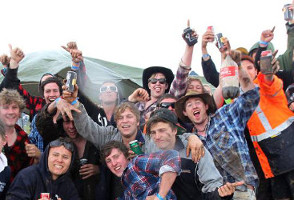
bog in = To tuck into food, to eat food with gusto, to indulge freely; e.g. “Here’s some pie, go on, bog in”. Similar to the expression “dig in”. Used in the rhyming parody prayer said before having dinner (instead of saying grace), “Two, four, six, eight; bog in, don’t wait”.
bog roll = A roll of toilet paper.
bolshie = Someone who is perceived as being very left-wing; an abbreviation from the Russian Bolsheviks (communists); e.g. “He sounds like a bit of a bolshie”, “Just listen to him, he’s a bolshie”.
bolt it in = To win easily, or to win by a great distance; e.g. “In the last race, he just bolted it in”.
bomb = A no-good car, of bad appearance, or poor mechanical worth; e.g. “It’s a bit of an old bomb”.
Bondi tram = To depart very quickly, to move fast. [See: shoot through like a Bondi tram]
bonk = Hit; e.g. “Shut up, or I’ll bonk you on the noggin” (i.e. “Be quiet, or I’ll hit you on the head”). Distinct from the modern term “bonk”, which refers to people having sexual intercourse.
bonnet = What the Americans would call the “hood” of a car, being that part of the front of a car which can be lifted up, to reveal the engine underneath (although, if you’re dealing with a Volkswagen, the engine is usually at the back of the car).
bonza = [See: bonzer]
bonzer = Excellent; e.g. “That meal was bonzer”. Can also be spelt as “bonza”.
boofhead = Someone who is stupid or a bit slow; e.g. “He’s a bit of a boofhead”.
bookie = A bookmaker (professional betting men who accept bets at racetracks).
boomer = A large kangaroo (such as in the Rolf Harris song about “Six white boomers”).
boongs = Derogatory name for Aborigines; also used for Papua New Guineans (PNG used to be a territory of Australia).
booze artist = Someone who drinks a lot of alcoholic drinks, especially beer.
booze bus = A police van, used as a mobile breath-testing station (for police to determine if a driver’s blood alcohol level is over the legal limit).
boozer = [1] A pub; e.g. “Come with us, we’re goin’ down the boozer”.
boozer = [2] Someone who drinks a lot of alcoholic drinks, especially beer.
bo peep = Look; e.g. “Have a bo peep at that over there”.
bored shitless = Extremely bored, very bored.
bottled = To smash someone (usually over the head) with a bottle, such as in a pub fight; e.g. “She bottled her boyfriend in a spat”, “He seems really angry, it looks like he’s going to bottle someone”.
bottle-o = A bottle shop (a shop selling alcoholic drinks), especially a drive-through bottle shop. Also spelt “bottle-oh”.
bottler = Someone who is really good. Derived from the complimentary phrase “your blood’s worth bottling”. Can also be used regarding non-human subjects.
bottle shop = A shop which mainly sells alcoholic drinks, especially a drive-through bottle shop. [See also: bottle-o]
bower bird = A hoarder; can also refer to a petty thief.
brass razoo = A reference to a (non-existent) worthless coin; e.g. “I haven’t got a brass razoo”, “This isn’t worth a brass razoo” (although they never existed as such, some “brass razoos” were manufactured at one stage as a novelty item, based upon the saying). [See also: haven’t got a brass razoo]
breakkie = An abbreviation of “breakfast” (also spelt “breakky”, “brekky”).
brickie = A brick-layer.
bring a plate = An instruction sometimes included with an invitation to a party or a barbeque, meaning that everyone should bring a plate of food, as a contribution to the general food layout. On occasion, foreigners, after reading this instruction, have brought an empty plate to an event (fair enough for a newbie, as that’s literally what it says; although to do so can be a bit embarrassing for the person when they turn up bearing no food).
Brissie = An abbreviation of Brisbane (the capital of Queensland). Can also be spelt as “Brissy” or “Brizzie”.
BS = An abbreviation of the word “bullshit” (referring to a lie, to something said that is disagreed with, or to a situation that is disagreed with”); e.g. “You reckon Australia was founded in the year 1500? No fricking way! That’s BS!”
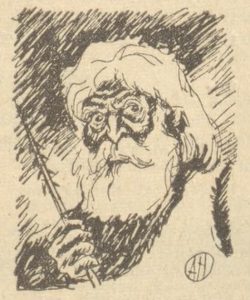
buck’s night = A groom’s party held prior to his wedding, a males-only occasion; also referred to as a “buck’s party”; from the idea of a young deer (a buck) reaching adulthood.
buck’s party = [See: buck’s night]
budgie smugglers = Small tight-fitting bathers (a swimming costume, or Aussie cossie) worn by men. Derived from the idea that when a man wears a small pair of tight bathers, it looks like he is smuggling (or hiding) a budgerigar (“budgie”) inside his bathers, whereas the bulge is actually his genitalia.
bugger = [1] Damn. The phrase “bugger it” means “damn it”. An exclamation of frustration, annoyance, or angst over a negative occurrence; e.g. if someone’s car breaks down in the middle of nowhere, they might exclaim “Bugger!” The term is used in the same way as “Damn!” Overseas visitors should take note that the term “bugger” is distinct from the original meaning of the terms “bugger” and “buggery”, which refer to anal intercourse. [See also: go to buggery]
bugger = [2] An annoying person (usually used regarding males); e.g. “He’s a real little bugger, isn’t he?”
bugger all = Very little or nothing; e.g. “I’ve just paid all of my bills, and now I’ve got bugger all money left”.
buggered = [1] Broken down, not working; e.g. “Damn, my lawn mower’s buggered; I’m gunna have to get it fixed”.
buggered = [2] Very exhausted, very tired; e.g. “I’ve just done a 12 hour shift, and I’m completely buggered”. Similar to “knackered”, “shattered”, “stonkered”.
bugger off = Leave me alone; go away. Similar to “Take a hike”.
buggery = [See: go to buggery]
built like a brick dunny = Someone of a solid and heavy build; e.g. “that boxer was built like a brick dunny”, “she was massive, built like a brick shithouse”.
Bullamakanka = Somewhere very far away. [See: Bandywallop]
bullet = Sacked; e.g. “He got the bullet from work” (i.e. was fired; got the sack),
bullshit = A term which is used to refer to a lie, to something said that is disagreed with, or to a situation that is disagreed with”); e.g. “That’s bullshit, you filthy liar!”, “You reckon Fred Nerk is the best footballer ever? That’s the biggest load of bullshit I’ve ever heard!”, “Since the accident, the boss won’t let me drive the truck now; that’s bullshit!”
bullshit artist = Someone who says a lot of “bullshit”, i.e. telling lies, fanciful stories (tall stories), or saying what is considered to be incorrect information.
bum steer = Given the wrong information, received the wrong directions, misled.
bundle = A lot of money, a bundle of money; e.g. “I made a bundle on that last horse race”.
bush = The Bush; bushland (areas in the country which have lots of bushes and trees; an area which is predominantly untamed wilderness; a bushland area which is a fair distance away from civilisation).
bush bashing = Driving around in the bush, especially where there are no roads or only tracks (especially used regarding four wheel drive vehicles).
bushed = Tired; e.g. “Geez, I’m bushed”.
bushie = A country person, a bushman (i.e. someone from “the bush”); can include a perception of an unrefined country person.
bushman’s clock = A kookaburra (a bird whose calls can be very loud and long in the morning).
bush pig = Someone with little or no manners, a badly-behaved person
bushranger = A criminal of the 19th century who lived in the bush and robbed people, especially travelers. Ben Hall, Captain Moonlite (Andrew Scott), Captain Thunderbolt (Frederick Ward), Frank Gardiner, Mad Dan Morgan, and Ned Kelly were all considered to be bushrangers.
bush tucker = Food found out in the bush, growing wild; exemplified in the TV series “Bush Tucker Man” (which aired in the 1980s and 1990s, starring Les Hiddins).
bush week = Uncultured behaviour, referring to the possibility of people living in the bush (without refined manners) coming down to the city en masse and acting up; e.g. “Don’t lick your fingers. What do you think this is? Bush week?”
bust up = A disagreement or fight; e.g. “They had a bust up”.
butcher’s = Rhyming slang for “look”, an abbreviation of “butcher’s hook”; e.g. “Have a butcher’s at this”. Similar to the rhyming slang term “Captain Cook”.
buy back the farm = To have Australian resources under Australian ownership; “the farm” referring to Australia.
BYO = An acronym for “Bring Your Own”, originally regarding alcoholic drinks but now also used for other items.
Cabbage Gardeners = Victorians. Also rendered as “Cabbage Staters” or “Cabbage Patchers”. Derived from the term “Cabbage State”, referring to the state of Victoria; the term infers that, because the state is quite small (compared to the other states of Australia), Victoria is about the size of a cabbage garden.
cactus = To die, to stop working; e.g. “My TV won’t work anymore, it’s cactus!” Can be used in the past tense (is dead, has stopped working) and in the future tense; e.g. “I heard that some thugs are going after Davo; he’s cactus!” [See also: carked it]
can’t be arsed = Don’t feel like doing something, not in the mood to do something, can’t be bothered; e.g. “I can’t be arsed to cook dinner tonight”.
can’t be bothered = Don’t feel like doing something, not in the mood to do something, can’t be arsed; e.g. “I can’t be bothered to go out today”.
capsicum = The non-spicy fruit of the capsicum plant; also known as “bell pepper”.
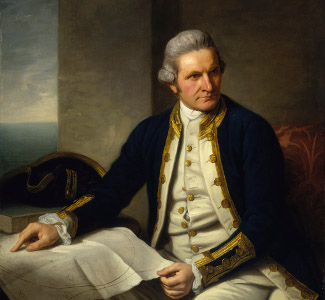
carbie = An abbreviation of “carburetor”.
cardie = An abbreviation of “cardigan”.
carked it = To die; stop working; e.g. “The next-door-neighbour wasn’t feeling so hot yesterday, then he carked it last night”, “My car engine has been acting up, I think it’s about to cark it”. [See also: cactus]
carn = The Strine pronunciation of “Come on”, especially used when barracking for a team; e.g. “Carn the Blues!”
carry on like a pork chop = To behave in an unduly agitated manner, to inappropriately rant on about something; e.g. “He disagreed with what I said, and started carrying on like a pork chop”. Believed to be derived from the insensitive, or politically incorrect, phrase “carrying on like a Jew with a pork chop in a synagogue”.
carry on like a two-bob watch = Someone carrying on in an unduly agitated manner; e.g. “he was carrying on like a two-bob watch” (from having a cheap watch that goes too fast).
CBD = An abbreviation of “central business district”. The central area of a city, the city center (also known to Americans as the “downtown” area).
Chappelli = Ian Chappell, cricketer (Test captain of the Australian cricket team 1971 to 1975); the nickname came from the way his name was displayed on cricket score boards, as “Chappell, I”, which distinguished him from his brother, Greg Chappell (“Chappell, G”), who played on the same team.
chardonnay socialists = Leftists from well-off socio-economic backgrounds.
chewy on your boot = A derogatory phrase called out at AFL matches (the imputation being that the caller hopes that the footballer has chewing gum stuck on his boot, so that he can’t kick the ball properly).
chigger = Tasmanian name for a bogan (from the Tasmanian suburb of Chigwell, which was regarded as a low-class area).
chink = A Chinese person; usually considered derogatory.
chin wag = Talk, chat, gossip, natter. Usually refers to a conversation of some length regarding matters of little importance; e.g. “They hadn’t seen each other in ages, so when they caught up they had a real good chinwag”.
chippy = A carpenter. Also spelt “chippie”.
chockablock = Full up, crowded (can be abbreviated as “chockers”); e.g. “The movie theatre was chockablock, there were no empty seats left”, “The train was chockers, so no more passengers could get in”. Also spelt “chock-a-block”.
chockers = An abbreviation of “chockablock”. Also spelt “chockas”. [See: chockablock]
chocky = A chocolate; can also be spelt as “choccy”.
chocky bickie = A chocolate biscuit (“a chocolate cookie” in American terminology).
chockos =An abbreviation of “chocolate soldiers”, a derogatory name given to the militia troops in World War Two, taken from a popular film called “Chocolate Soldiers”, with the imputation that if you put them in a fight that they would melt away when things got too hot.
chong = A Chinese person; usually considered derogatory.
choof off = To depart, usually (but not always) said in a friendly manner; e.g. “Go on mate, choof off, get going”.
chook = A chicken (whether cooked, uncooked, on the farm, or located elsewhere). [See: couldn’t raffle a chook in a pub; like a chook with its head cut off; may your chooks turn into emus and kick your dunny down]
chop chop = Illegal tobacco.
Chrissie = An abbreviation of “Christmas”; can also be spelt as “Chrissy”.
Chrissy = An abbreviation of “Christmas”; can also be spelt as “Chrissie”.
chuck = [1] Throw; e.g. “Chuck us the stick over here”, “Hey, chuck us a can of beer, would ya?”
chuck = [2] To vomit, to “chuck up”, to “throw up”; e.g. “he drank ten beers, then he chucked up in the toilet”.
chuck a mental = Have a tantrum, get angry (the imputation is that one is acting like a mentally disabled person having a fit); also “chuck a wobbly”, “chuck a mickey”, “chuck a fit”; e.g. “His mate nicked his girlfriend and he chucked a mental”.
chuck a sickie = To have a day off work, claiming to be sick whilst not being ill at all (falsely claiming sick leave).
chuck a wobbly = Have a tantrum, get angry (the imputation is that one is acting like a mentally disabled person having a fit, wobbling about all over the place); also “chuck a fit”, “chuck a mental”, “chuck a mickey”; e.g. “Someone stole his bike and he chucked a wobbly”.
chunder = To vomit.
churchie = A church-goer; can also refer to students from Church of England schools.
ciggie = An abbreviation of “cigarette” (also known as a “durry”; plural: “durries”).
City of Churches = Adelaide, the capital city of South Australia.
Clayton’s = A non-alcoholic drink advertised (in a huge advertising campaign) as “the drink you have when you’re not having a drink”, a phrase that then came to be commonly used to describe many other things that largely occur, or exist, in name only; e.g. “A Clayton’s campaign” (the campaign you have when you’re not having a campaign).
cleanskin = Someone without any criminal convictions; in other circumstances, someone with a “clean sheet”.
clever bastard = A smart alec, a smart arse; e.g. The young punk mouthed off at my mate David, saying some smart arse remark, Davo said “You think you’re a clever bastard, dontcha?”, and punched him in the face.
clippie = A tram conductor (who would clip tram tickets, using a hole punch).
clocked = To have hit someone; e.g. “he got angry and he clocked him”; presumably derived from hitting someone across the “dial” (“dial” being slang for face, as the face of a clock is called a dial).
clucky = Refers to a woman who is showing interest in babies, or in having a baby, derived from the “clucking” of a mother hen over her chicks.
Coathanger, the = A humourous name for the Sydney Harbour Bridge (a reference to the bridge being perceived as being in the shape of a coathanger).
cobber = A good friend, a good mate.
cockies = [1] Cockatoos, a type of bird.
cockies = [2] Often a derogatory term for poor bush farmers, possibly from having land so poor that they were jokingly said to only be able to farm cockies (cockatoos, a type of bird); however, it is now often used to refer to farmers in general. Singular: “cocky”.
coldie = A cold can of beer, a cold stubbie of beer, or a cold glass of beer (also known as “a cold one”).
a cold one = [See: coldie]
Collins Street farmer = A businessman or investor who buys or invests in a farm or agricultural business (Collins Street is a street in Melbourne associated with businessmen, particularly with medical professionals); the New South Wales version is a “Pitt Street farmer” (named after a street in Sydney which is associated with businessmen).
come the raw prawn = To try to impose on someone, or to seek an advantage; e.g. “Don’t come the raw prawn with me!”
Commie = A Communist; also rendered as “Commo”.
compo = Worker’s compensation, also known as “worker’s comp”.
connie = A tram conductor (now outdated, since the removal of conductors from the trams in Melbourne).
convo = An abbreviation of “conversation”.
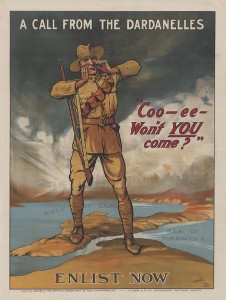
coon = Derogatory name for Aborigines (taken from the American usage regarding Negroes).
copper = A policeman.
cop it sweet = When someone takes on a negative outcome without complaining.
Cornstalks = People from New South Wales; New South Welshmen. In earlier times (when New South Wales was the main area of settlement in Australia), it was used to refer to native-born Australians in general (regarding those of British-European descent, as the term did not include the Aborigines). Usually used regarding men. Derives from the notion that men in Australia grew up tall and thin.
cossie = An abbreviation of swimming costume. Also known as a “bathers” (from bathing in water) or “Speedos” (from the brand-name “Speedos”, a manufacturer of bathers).
cot case = Someone who should be put in a hospital bed (a hospital cot), usually regarding someone who is badly inebriated, but also used for someone who is mentally deranged.
couldn’t organise a piss-up in a brewery = Referring to someone who is incompetent.
couldn’t organise a root in a brothel = Referring to someone who is incompetent.
couldn’t raffle a chook in a pub = Referring to someone who is incompetent.
couple of lamingtons short of a CWA meeting = Someone who is lacking in intelligence, someone who is a bit mentally slow, someone who is a bit slow on the uptake; e.g. “She’s a couple of lamingtons short of a CWA meeting” (“CWA” refers to the Country Women’s Association). Similar to “a few sandwiches short of a picnic” and “a few cents short of a dollar”.
cow cocky = A dairy farmer. [See: cockies]
crack a fat = To get an erection. [See also: stiffy]
cracked = To achieve something in particular, or to succeed in life; e.g. “He cracked the exams” (possibly from someone successfully opening or “cracking” a safe).
crack onto = To attempt to strike up a relationship, so as to establish a sexual liaison; e.g. “He saw her at the pub, and cracked onto her”.
crack open a tinnie = Open a can of beer.
crack the shits = When someone gets very annoyed or angry at someone else.
crawler = Someone who sucks up to authority figures; e.g. “He brought the teacher an apple, he’s a real crawler”.
crikey = An exclamation of surprise; e.g. “Crikey, that croc’s a whopper!”
crook = [1] Ill, sick, unwell; e.g. “Davo can’t go into work today, because he’s real crook”. Distinct from “crook”, meaning criminal.
crook = [2] To attack or abuse, to go crook at someone; e.g. “She went crook at him when she found out that he ate all the chocolates”.
Crow-eater = Someone from South Australia. Derived from the early years of South Australia, when food was in short supply, and it was said that people in South Australia were shooting crows to cook and eat them. Spelt both with and without a hyphen: Croweater, Crow-eater.
crust = Used in reference to someone’s job or income; e.g. “I’m working on a farm, earning a crust”, “What do you do for a crust?” (derived from the association of the term “bread” with money).
cunt = Although this is regarded as one of the worst swear words in the English-speaking world, many Australians use this word as a matter of course. As part of a phrase, the word “cunt” usually refers to men; for example, “mad cunt” is a good bloke who is a fun guy to hang out with (even though he might be considered to be a little bit crazy); a “top cunt” is a really good bloke; however, a “shit cunt” is a horrible rotten scumbag of a person. There have been a myriad of internet memes which typically include a photo of an Australian scene, person, or event, with the phrase “Straya Cunt” superimposed over the picture (basically meaning “This is Australia, ya bastard”, in a friendly manner).
The Cup = The Melbourne Cup; the famous horse race conducted every first Tuesday in November.
cuppa = A cup of tea, or a cup of coffee; e.g. “Come and have a cuppa”.
currency lads, currency lasses = Native-born Australians; from colonial times when British coinage was scarce and Australian traders produced their own promissory notes or “currency” (i.e. not British sterling). See: IAC list on Trove.
curry = To attack or abuse, to give someone curry; e.g. “she gave him curry when he got back late from the pub”.
cut = Feeling hurt; e.g. “he was really cut when he got the sack”, “his girlfriend left him and he was really cut up about it”.
dag = Someone who is not fashionable; e.g. “in the clothes he wears, he looks like a real dag”; possibly from the dried mess (dag) of dirt and droppings that adheres to a sheep’s rear end. Similar to “geek” and “nerd”, but not the same, as those two terms also imply someone who studies hard or who is tech-savvy.
dacks = Pants, trousers. Also spelt “daks”, “dakks”.
darl = An abbreviation of “darling”.
Davo = David. This is part of the Australia tradition of giving various names an “o” suffix; e.g. Davo, Jacko, Johno, Robbo, Stevo, and Tommo (David, Jack, John, Robert, Steve, and Tom). Some names are given a different vowel suffix; e.g. Wozza.
dead horse = Rhyming slang for “sauce”, usually used regarding tomato sauce.
dead marine = An empty beer bottle (possibly of US origin or reference thereto). See: IAC list on Trove.
dead set = Truly, really, real; genuine, authentic; e.g. “She’s a dead set stunner”, “I’m dead set against that”. Can be spelt with a hyphen (“dead-set”) or as one word (“deadset”). Can be used in a similar manner to “fair dinkum”.
dead-set drongo = Someone who is regarded as a total idiot, stupid, clumsy or useless; e.g. “He’s a dead-set drongo”. [See also: drongo]
dead tight = Very drunk. See: IAC list on Trove.
decko = To look; e.g. “Have a decko at that!”
defo = An abbreviation of “definite” or “definitely” (also spelt “deffo”).
deli = Delicatessen, a shop mainly selling cold cuts of meat, or a section in a supermarket where cold cuts of meat are obtained (however, in Perth, “deli” is the term used for “milk bar”).
devo = An abbreviation of “devastated”. Also rendered as “devo’d”.
dial = A person’s face (derived from the face of a clock, which is called a dial.)
did you get your license from out of a Cornflakes packet? = A phrase used against incompetent car drivers (the imputation being that their driving is so bad that they couldn’t have got their license by being a good driver and passing a driving test; derived from the era when small toys were sometimes included in packets of cereal as promotional extras).
dig = An abbreviation of “digger” (meaning friend, cobber, mate).
digger = [1] Friend, cobber, mate. Can also be used in a general sense when speaking to someone; e.g. “Excuse me, digger, how do I get to the next town?” Derived from World War One army slang, when the soldiers referred to each other as “digger”. Sometimes abbreviated as “dig”. Rarely used nowadays.
digger = [2] An Australian soldier.
dillybag = A small bag; derived from the Aboriginal term for a bag or basket.
dimmies = Dim Sims, the Australian version of the Chinese food Dim Sum; cooked for diggers on the goldfields in the 1850s, the modern recipe and style is believed to have been developed by William Wing Young in 1945
ding = A dent, especially in a car.
dingbat = An odd or eccentric person.
dingo = A treacherous and cowardly person; from the characteristics attributed to the Australian dog, the dingo.
dingo’s breakfast = No breakfast at all. Derived from the hard life of a dingo, who may not always find it easy to obtain food. A dingo’s breakfast has been described as “a piss and a look around” [ref.] or “a piss, a scratch and a good look around” (SMH, 19 April 2017).
dink = To carry someone as a passenger on a bike; e.g. “Go on, give us a dink on your bike”; also referred to as “double-dinking”.
dinkum = Genuine, authentic, honest, on the level, correct, true; e.g. “Fair dinkum, that’s what happened”. Can be used for emphasis; e.g. “I’m fair dinkum about this!”; or to express incredulousness; e.g. “Are you fair dinkum?” (i.e. “Are you for real?”). Also used to refer to “real Australians”; e.g. “He’s a fair dinkum Aussie”. [See also: fair dinkum]
dinky di = Someone or something which is regarded as genuinely Australian, truly Australian, or very Australian; e.g. “He’s a dinky-di Australian” (can be spelt with or without a hyphen). Derived from “dinkum”. [See also: true blue]
dirty on = To be unhappy with someone; e.g. “he’s dirty on her for flirting with his brother”, “she’s dirty on him for spending the night at the pub”; also to have the wrong thing done to someone; e.g. “he did the dirty on her”; similar to “filthy on”.
Ditch, the = The Tasman Sea, as the “ditch” between Australia and New Zealand; sometimes pronounced as “the dutch”, as a reference to the New Zealand style of pronouncing vowels.
divvy = Divide; e.g. “The stage manager divvied up the takings”; can also be spelt as “divvie”.
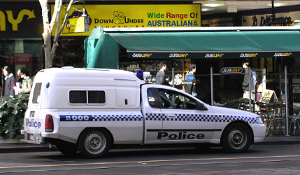
do = To bash or fight someone; e.g. “I’ll do you!”; also as “do over”; e.g. “he did him over”.
dob = To inform on; e.g. “He dobbed him in to the cops”, “She dobbed in her classmate to the teacher”.
dobber = Someone who dobs someone in to the authorities (whether it be to the police, teachers, parents, etc.), an informer; e.g. “Watch out for that bloke, he’s a dobber”.
doco = A documentary (usually refers to one on television).
dodgy = No good, of dubious quality, dishonest, of questionable morality; e.g. “The politician promised to do it, but most people didn’t believe him, because they considered him to be dodgy”, “Don’t buy a used car from that place, they’re dodgy as fuck”, “Don’t buy the Chinese-made tools from the hardware store, as they’re dodgy”.
doesn’t know if he’s Arthur or Martha = Someone who is confused; similar to “doesn’t know if he is coming or going”.
dog = An informer (a snitch; a narc), especially an informer for the police or prison guards; e.g. “Don’t trust that bloke, he’s a dog”, “He dogged on his mates”.
dog’s breakfast = A big mess.
dog’s dinner = A big mess.
dole = Unemployment benefits, which (in Australia) are given to unemployed people by Centrelink (payments were previously handed out by the Department of Social Security). In earlier times, the dole was called “susso” (from “sustenance payments”). Amongst Australian Aborigines, the dole is also referred to as “sit down money”).
dole bludger = Someone who receives unemployment benefits, but who is perceived to be not seriously looking for work, or who is not wanting to do any work at all. [See also: bludger]
done like a dog’s dinner = To come a cropper; also rendered as “done like a dinner”.
dong = To hit or punch; e.g. “He donged him on the head”.
dontcha = The vernacular version of “Don’t you”.
don’t go out in a wind = A reference to the phrase about someone who thinks so highly of themselves, that “they’ve got tickets on themselves”; e.g. “Don’t go out in a wind, or your tickets will blow off”.
don’t get your knickers in a knot = Don’t get upset. Similar to the phrase “Don’t get your panties in a twist”.
doof music = Loud music, which, when heard at a distance, sounds like “doof, doof, doof, doof”.
doona = A padded blanket used as a bed cover (also known as a “comforter” or a “duvet”).
Dorothy Dixer = A question asked in parliament by a member of the same party, as a planned question, so as to enable the responder to give a prepared speech; derived from a letters section in a newspaper where readers would write to Dorothy Dix, although some of those letters were believed to have been written by the newspaper staff themselves.
down = To be unhappy with someone; e.g. “He’s got a real down on him for smashing his car”; also rendered as a “downer”.
Down Under = Australia; e.g. “I come from a land down under” (the phrase was used in the well-known song “Down Under”, sung by Men At Work).
drink with the flies = To drink alone, especially regarding drinking beer alone.
drongo = An idiot or a fool; someone who is stupid, clumsy, or useless; e.g. “He’s a real bloody drongo”. [See also: dead-set drongo]
droob = A worthless person, “He’s a complete droob”.
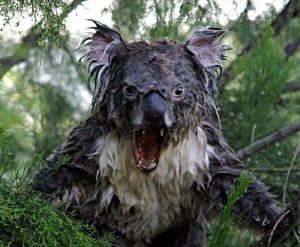
dropkick = Someone who is dumb or an idiot.
drop one’s bundle = To give up.
druggie = A drug addict; similar to “druggo”.
druggo = A drug addict; similar to “druggie”.
drum = Reliable information; e.g. “Give us the drum”, “He’s got the real drum on what’s going on”.
dry as a dead dingo’s donger = Very dry, or very thirsty; e.g. “Gimme a drink, I’m as dry as a dead dingo’s donger”. Based upon a reference to a dead dingo’s private parts (a “donger” or “donga” is a penis). Similar to “dry as a nun’s nasty”.
dry as a nun’s nasty = Very dry, or very thirsty; e.g. “I’m as dry as a nun’s nasty”. Based upon a disrespectful reference to a nun’s private parts from lack of sexual activity. Similar to “dry as a dead dingo’s donger”.
duck-shoving = To move things around, to jockey for position, or to evade responsibility.
dud = Defraud; e.g. “He dudded me on the deal”.
duffer = A hapless person; e.g. “You’re a bit of a silly duffer, aren’t you?” Possibly derived from an unproductive or worthless mine, termed a “duffer”.
dunno = An abbreviation of “don’t know”; e.g. “I dunno if the bottle-o shuts at 10 or 11”.
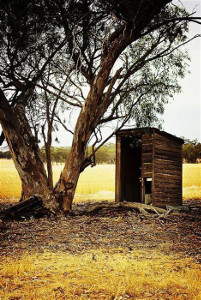
dunny diver = A plumber.
dunny roll = A roll of toilet paper.
durry = A cigarette; e.g. “he smoked his durry outside”, “hurry for your durry”. Plural: “durries”.
dust up = A fight.
earbashing = To talk non-stop, to talk incessantly, or to tell someone off; e.g. “she gave him a real earbashing”.
Eastern staters = People from the Eastern states of Australia, or people living in the Eastern states (this is a term used by people in Western Australia).
Emma Chisit = A reference to the Australian pronounciation of “How much is it?”; based upon an allegedly true incident in which an author, at a book signing, was handed a book by a customer, who asked “How much is it?”, and the author signed the book with the message “To Emma Chisit”.
esky = An insulated container, which uses ice or refrigerated blocks to keep food and drinks cool. Commonly used for storing food and drinks when going to a barbie or a picnic. Derived from the brand name “Esky”, a manufacturer of such containers.
ethnic = A non-Anglo person; in common usage, “ethnics” usually refers to non-Anglo Europeans.
faffing around = Wasting time, dawdling, mucking about, doing little of nothing. Similar to “mucking around”.
fair crack of the whip = To call for fair treatment, or a demand to give someone a reasonable chance; e.g. “I don’t think this district is getting a fair crack of the whip”, “I believe in a free Press so long as the paper gives everyone a fair crack of the whip”.
fair dinks = An abbreviated form of “fair dinkum”. [See: fair dinkum]
fair dinkum = Genuine, authentic, honest, on the level, correct, true; e.g. “Fair dinkum, that’s what happened” (“Truly, that’s what happened”). Can be used for emphasis, e.g. “I’m fair dinkum about this!” (meaning: genuine, truthful). Can be used to express incredulousness, e.g. “Are you being fair dinkum?” (“Are you telling the truth?”). Also used to refer to “real Australians”; e.g. “He’s a fair dinkum Aussie”. [See also: dinkum; fair dinks; ridgy-didge]
fair enough = When an Aussie answers you with “Fair enough”, there are two possibilities as to what is means, depending on the context of the conversation. 1) That seems fair; that comes across as reasonable; I agree with you (at least to a certain extent). 2) It sounds like you’re spewing out a load of BS, but I really can’t be stuffed to argue about it.
fair go = To have fair treatment; e.g. “We believe in a fair go around here”; also used as a form of protest; e.g. “Fair go, mate!” as a demand for fair treatment.
fair suck of the sauce bottle = To call for fair treatment, or a demand to give someone a reasonable chance; e.g. “Geez, fair suck of the sauce bottle, give me a go”.
fair suck of the sav = To call for fair treatment, or a demand to give someone a reasonable chance; e.g. “Fair suck of the sav, give him a chance”. The full phrase is “Fair suck of the saveloy”, but “saveloy” has long since been shortened to “sav” (a saveloy is a seasoned pork sausage).
fairy bread = Bread spread with butter or margarine, with hundreds and thousands (very small balls of candy) sprinkled on top.
fairy floss = Heated sugar which has been finely-spun into thin threads, and twirled into a mass, usually presented on a stick (also known as “candy floss” and “cotton candy”).
fang it = To move quickly, especially to drive fast; e.g. “We fanged it out of there”.
FAQ = Acronym for “Fair Average Quality”; not normally used now, especially as it would be confused with the modern acronym of FAQ, meaning “Frequently Asked Questions”.
far out = An exclamatory phrase, used regarding something fantastic or great (e.g. “I love the painting you made. That’s far out!”), or in response to something negative (e.g. “Oh, far out! The axle on my car broke! I can’t believe it!”)
feed = A meal; e.g. “The local pub sells counter meals, so we went in there and had a feed”.
a few cents short of a dollar = [See: a few sandwiches short of a picnic]
a few sandwiches short of a picnic = Someone who is lacking in intelligence, someone who is a bit mentally slow, someone who is a bit slow on the uptake; e.g. “That bloke’s a bit strange; he’s a few sandwiches short of a picnic”. Can also refer to someone who is perceived to be a bit mad or crazy. Similar to “a few cents short of a dollar”, “a few sangers short of a barbie”, “a couple of lamingtons short of a CWA meeting”, and “a few stubbies short of a six-pack” (also: “a stubbie short of a six-pack”).
a few sangers short of a barbie = [See: a few sandwiches short of a picnic]
a few stubbies short of a six-pack = [See: a few sandwiches short of a picnic]
FIFO = [1] An acronym for “Fit In or Fuck Off”.
FIFO = [2] An acronym for “Fly In, Fly Out”, referring to FIFO workers (particularly regarding mine workers in remote areas of Western Australia) who fly in to remote locations, work for two to three weeks, then fly back to their homes for a week or so, and then fly back to work again.
filthy on = To be unhappy with someone; e.g. “He’s filthy on her for flirting with his brother”, “She’s filthy on him for spending the night at the pub”; similar to “dirty on”.
first cab off the rank = To be the first to take advantage of an opportunity; similar to “first in, best dressed”; from getting the first taxi cab from a queue of taxis (a taxi rank).
First Fleeter = Someone who arrived in Australia on the First Fleet, or one of their descendants.
fix you up = To pay someone; e.g. “Thanks for the loan, I’ll fix you up next week”.
fizzer = Something that fails to live up to expectations; e.g. “That show was a real fizzer”. Possibly derived from a firework which fizzles, rather than goes off properly.
flake = The meat from a gummy shark, commonly sold in fish and chip shops.
flannie = Flannelette shirt. Also rendered as “flanno”.
flat chat = Very fast; very hard; e.g. “We’re working flat chat to get it done on time”, “He drove flat chat to get to the game on time”.
flat out = Working very hard; very busy.
flat out like a lizard drinking = Working very hard; very busy; e.g. “he was flat out like a lizard drinking to get the project completed on time”. Similar to “flat chat”.
flick = Get rid of; e.g. “He got the flick from work the other day” (i.e. got the sack), “his girlfriend didn’t like him any more, so she gave him the flick”; similar to give someone the arse.
fluff = Flatulence, to break wind.
footy = Australian Rules Football.
fossick = Look for something. Derived from the gold rush days, when people fossicked for gold.
franger = A condom.
Fremantle Doctor = The cool breeze that blows in to Fremantle and Perth in the evenings.
frog and toad = Rhyming slang for “road”; e.g. “We’ve been here too long, it’s time to hit the frog and toad” (also shortened to “hit the frog”).
Fuck me drunk = Said when something bad happens, or when life is not going so well. Also: “Fuck me dead”. Similar to: “For fuck’s sake!”, “Fuck my life!”, “Bugger me!”, “That shit’s fucked”, “That’s fucked up”, “proper fucked”.
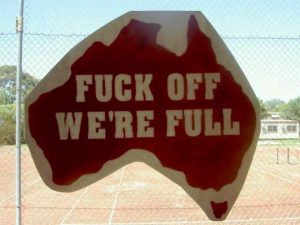
fuck truck = A panel van, often laid out with carpet, and with curtains fitted over the windows of the back compartment, so as to make it a suitable place for intimate couplings. Also known as a “root ute”, a “shaggin’ wagon”, or a “sin bin”.
fugly = Someone who is regarded as “fucking ugly”.
full as a goog = Full up, eaten to one’s limit, eaten too much; e.g. “Gor blimey, I ate too much, I’m as full as a goog”. A “goog” is an egg (which tend to be very full inside).
furphy = A rumour. Derived from the rumours men swapped with each other when gathered at water carts (many of which used to have the brand name on them of the Shepparton manufacturing company called J. Furphy & Sons); especially applies to a rumour or story which is untrue or which sounds unlikely to be true.
fush an’ chups = Fish and chips; a reference to the New Zealand style of pronouncing vowels.
fussed = Don’t feel like doing something, not in the mood to do something, can’t be bothered; e.g. “Do whatever you want, I’m not fussed”. Similar to “arsed”.
The G = The Melbourne Cricket Ground, abbreviated as “The MCG”, further abbreviated as “The G”.
The Gabba = A reference to the cricket ground in Wooloongabba, Queensland.
galah = Someone who is regarded as a fool, an idiot, or stupid; e.g. “That bloke’s a flamin’ galah; he doesn’t know whether he’s Arthur or Martha ”. Derived from the perception that galahs (a species of bird) are not very bright.
game as Ned Kelly = Someone who is brave, willing to face incredible odds; e.g. “You should have seen the way those soldiers charged the enemy, they were as game as Ned Kelly!”
gander = To look; e.g. “Hey, come and have a gander at this!”
garbo = A garbage man; the bloke who comes along in a truck to collect the rubbish.
Gazza = Garry. This is part of the Australia tradition of giving various names a “zza” suffix; e.g. Bazza, Gazza, and Shazza (Barry, Gary, and Sharon).
g’day = An abbreviation of “good day” (used as a greeting, similar to “Hello”).
g’day cobber = Another way to say “Hello mate” or “Good day to you, my friend”. A greeting used by an older generation of Australians.
Geebung = Somewhere very far away. [See: “Bandywallop]
geek = To look; e.g. “Have a geek at this!” (not to be confused with the term “geek” referring to a studious person, bookworm, or nerd).
get a handle on = To understand something; e.g. “I tried to learn algebra, but I couldn’t get a handle on it”.
get out of here = An expression of disbelief; e.g. “You reckon there’s life on Mars? Go on, get outta here”. Similar to “get off the grass”, “get out of town”.
get your end in = To have sexual intercourse.
gi-normous = Very big; a combination of “gigantic” and “enormous”; e.g. “that cake was massive, it was gi-normous”; can also be spelt as “ginormous”.
give it a bash = To have a go at doing something, to attempt to do something; e.g. “I’ll give it a bash”.
give it a burl = To have a go at doing something, to attempt to do something; e.g. “Go on, give it a burl”. Similar to “give it a bash”, “give it a whirl”. See: IAC list on Trove.
give it a burl, Shirl = An expanded form of the phrase “Give it a burl”. See: IAC list on Trove.
glassed = To smash someone (usually in the face) with a glass, commonly in a pub fight; e.g. “He glassed that bloke at the bar”, “Watch out, he’s nasty, he might glass you”.
gnarly = Awesome, great, fantastic, terrific.
go bag your head = Telling someone to rack off (telling someone to go away), usually while in a dispute or disagreement.
God’s own country = A reference to Australia, or parts thereof, as a paradise on earth.
Going for a Bushman’s = Going to the toilet in the manner of a bushman out in the bush. The phrase appears in the book An Australian Odyssey: Two Grey Goats Go Walkabout (2024) by Michael Franklin-Harris (“April 8th 2004 … sleeping in the van and going for a ‘bushmans’ in the morning”).
going off = Very busy, especially regarding something which has attracted a lot of people; e.g. “We advertised widely about the dance, and now the place is going off!”
go like the clappers = To move at high speed.
The Gong = An abbreviation of Wollongong (a coastal city in New South Wales).
good onya = Good on you (i.e. well done, great going, great work); e.g. “Thanks for fixing my car, good onya!” Can also be used in a sarcastic manner; e.g. “Now you’ve broken it; good onya, idiot”.
goog = An egg; e.g. “Gor blimey, I ate too much, I’m as full as a goog”. Also called a “googy egg”, although that phrase is normally used with children; e.g. “Would you like a googy egg?” (can also be spelt “googie egg”).
goon bag = A wine cask, specifically the bag (bladder) which contains the wine. Also known as a “goon”, “goonie”, or “goonie bag”.
goonie = [See: goon bag]
go soak your head = Telling someone to rack off (telling someone to go away), usually while in a dispute or disagreement.
go south till your hat floats = A relatively polite way of telling someone to go drown themselves; e.g. “You’re useless, you should go south till your hat floats”.
go to buggery = Go to hell. Whilst “buggery” does not specifically mean “hell”, in this context it serves the same function as “hell” (as used in the common phrase “Go to hell”). Similar to the phrase “Damn you to hell”. In the context of Australian slang, “bugger” means “damn” (“damnation”). In Australia, the terms “bugger” and “buggery” are relatively inoffensive (in the right context, they are only as offensive as the words “damn” and “hell”); however, this usage is very different to other countries, which is why the ABC television show “Club Buggery” (1995-1997) had problems being sold to overseas markets, since in other countries the term “buggery” is only known regarding its original meaning of anal intercourse (in 1998 the “Club Buggery” show was revamped as “The Channel Nine Show”). [See: bugger]
got tickets on yourself = Full of yourself; up yourself. Used regarding someone who thinks so highly of themselves, that “they’ve got tickets on themselves”. [See also: Don’t go out in a wind]
go walkabout = To disappear, to go off somewhere, especially unexpectedly. Derived from the practice of young male Aborigines “going walkabout”, heading off into the wilderness, to live alone for several months, as a rite of passage.
great Australian dream, the = The desire to own one’s own home and block of land.
great grey migration, the = When, in the winter season, thousands of retired Australians (“grey hairs”) from the southern states travel to Queensland for a holiday.
grey nomads = Elderly people, particularly retirees, who travel a lot, especially using caravans or campervans.
grog = Alcohol, an alcoholic drink; e.g. “I’m going to the bottle shop to get some grog”.
Gropers = An abbreviated form of “Sandgropers”, i.e. Western Australians. A term arising from the vast sandy deserts of Western Australia (also, “sandgroper” is the name of a burrowing insect found in Western Australia, belonging to the Cylindrachetidae family).
grouse = Awesome, great, fantastic, terrific.
grumblebum = A complainer, a whinger, a whiner.
grundies = Rhyming slang for “undies” (underpants, underwear). Also known as “reg grundies”. Derived from Reg Grundy, a well-known producer of various Australian television shows.
guernsey = A football jumper (clothing used to cover the torso), which displays the team’s colours; “to get a guernsey” refers to being picked, or selected, for a footy team (can also be used in other contexts, re. being selected to join a team or group).
gumbies = Gumboots.
Gumsuckers = People from the state of Victoria.
gunna = The Strine pronunciation of “going to” (also rendered as “gonna”).
gutless wonder = A coward, i.e. someone who hasn’t got any “guts” (courage).
haven’t got a brass razoo = Being poor; a reference to a (non-existent) worthless coin; e.g. “Sorry, I can’t lend you any money, I haven’t got a brass razoo” [See: brass razoo]
happy as a bastard on Father’s Day = A reference to someone who is unhappy; e.g. “He looks a bit down in the mouth; he’s about as happy as a bastard on Father’s Day”.
hard yakka = Hard work (“yakka” is also spelt: “yacca”, “yacka”, “yacker”, “yakker”).
have a blue = To have a fight.
hawk the fork = Soliciting for purposes of prostitution; from hawk (to sell) and fork (vagina); e.g. “I’ve seen that woman before, she was hawking her fork down at the docks”.
heaps = A lot; e.g. “About that new kid in school, Tracey likes him heaps”. Similar to “loads” and “stacks”.
hollow legs = A reference to someone who is very hungry, or someone who is eating a lot; e.g. “He’s got hollow legs”. Based upon the fanciful notion that a person is eating so much that the food is filling up not only their stomach, but also their legs.
hoon = A larrikin, a lout (often used regarding larrikin drivers, who drive too fast and in a dangerous manner).
hoo roo = Goodbye. Also spelt “hooroo”. Similar to “oo roo”.
How ya goin’? = A question asking as to someone’s state of wellbeing, meaning “How are you going?” or “How are you today?” (“ya” is Strine for “you”).
Howzit goin’? = A question asking as to someone’s state of wellbeing, meaning “How is it going” (i.e. “How are things going?”; commonly used in the same way as “How are you going?” or “How are you today?”)
hubby = Husband.
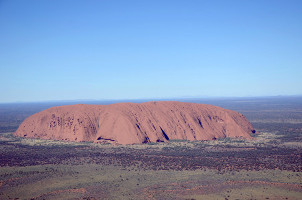
icy pole = Frozen flavored sugared water or fruit juice, presented on a small stick, designed to be held with one hand. Also known as an “ice lolly” or a “popsicle”).
idiot box = A television (because people watching TV can be oblivious to the world around them, just like a pack of idiots; also because watching TV requires the use of fewer brain cells than reading, but it’s a useful tool for entertaining idiots).
iffy = Not very good, suspect, suspicious, dodgy; e.g. “I’m not sure about this chicken in the fridge, I think it’s a bit iffy”.
If your brains were dynamite they wouldn’t part your hair = Derogatory phrase, inferring that someone is not very smart.
in like Flynn = To seize an opportunity, often used in referring to a sexual opportunity; from the alleged activities of the Australian actor Errol Flynn.
it’s a boomerang = Used in reference to loaning an item (making it clear that it is not a present to keep, but a loan that is to be returned; like a boomerang, it is meant to come back); e.g. “You can borrow my hammer; but, remember, it’s a boomerang”.
it’s all over Red Rover = Indicating the finish of something; e.g. “Once the cops catch up with him, then it’ll be all over red rover”.
Jacko = Jack (or the surname Jackson). This is part of the Australia tradition of giving various names an “o” suffix; e.g. Davo, Jacko, Johno, Robbo, Stevo, and Tommo (David, Jack, John, Robert, Steve, and Tom).
jacks = Police.
jake = Good, well, going well, satisfactory, alright, ok, fine; e.g. “I thought they were gonna have a fight, but everything’s jake”, “I thought this project was going to go tits-up, but, as it turns out, she’s jake”. [See also: she’ll be apples]
Jezza = Alex Jesaulenko, footballer.
Johno = John. This is part of the Australia tradition of giving various names an “o” suffix; e.g. Davo, Jacko, Johno, Robbo, Stevo, and Tommo (David, Jack, John, Robert, Steve, and Tom).
journo = An abbreviation of “journalist”.
jumbuck = A sheep.
jumper = A woollen pullover or sweater. Can also refer to a guernsey worn by a footy player.
K = Kilometer (abbreviation); e.g. “It’s 12 Ks to the nearest petrol station”. In army slang, a kilometer is called a “click”; e.g. “It’s 25 clicks to the RV” (“RV” refers to a rendezvous).
kangaroos loose in the top paddock = Someone who is not all there, a bit mad, crazy, loony; e.g. “He’s got a few kangaroos loose in the top paddock”.

ken oath = An abbreviation of “fucken oath” (“fucking oath”).
kiddo = A kid, a child. Can also be used when talking to any younger person (even an adult) in a parental or negative fashion; e.g. “Look here, kiddo, you’d better not do that”.
kindy = An abbreviation of “kindergarten” (also abbreviated as “kinder”).
King Gee = A successful clothing brand in Australia. The phrase King Gee is an old slang expression, referring to the reigning British monarch at the time, King George V (1865-1936), hence “King G” (King Gee) was slang for “the tops” or “the greatest”.
Kiwi = A New Zealander, used in reference to a person who comes from New Zealand, or an item of New Zealand origin (e.g. a Kiwi wine).
knackered = Very tired, exhausted. Similar to “buggered”, “shattered”, “stonkered”.
knackers = Testicles. Derived from “knackers”, a slang term for castanets.
knickers = Underwear worn by females; panties. Used in the phrase “Don’t get your knickers in a twist” (“Don’t get upset”).
knock your block off = To hit someone in the head; e.g. “Don’t do that again, or I’ll knock your block off”.
Kozzie = Kosciuszko, regarding Mount Kosciuszko (in Kosciuszko National Park)
lammo = A lamington. Also rendered as “lammie”.
larrikin = In earlier times the word “larrikin” referred to a young male urban hoodlum, lout, or roughneck, or someone who was loud, mischievous and rowdy; in modern times “larrikin” refers to someone who behaves rowdily and noisily in public, or who has a disregard for cultural, social, or political conventions. [See also: bogan; Westie]
laughing gear = Teeth, mouth; e.g. “Get your laughing gear around that sanger”. See: IAC list on Trove.
Lebo = An abbreviation of “Lebanese”, used in reference to a person of Lebanese ethnic origin, or an item of Lebanese ethnic origin (e.g. a Lebanese restaurant).
legless = Drunk, inebriated, intoxicated, badly affected by drinking alcoholic drinks. Derived from someone being so badly inebriated that they can hardly stand up.
like a bandicoot on a burnt ridge = Someone who is very alone.
like a chook with its head cut off = A reference to someone who is behaving in an erratic or foolish manner; e.g. “there was someone running round like a chook with its head cut off, yelling blue murder, so to speak” (The Bulletin, 10 February 1960, p. 33)
like a house on fire = Regarding people who get on well together; e.g. “they became great friends, they got on like a house on fire”.
lingo = An abbreviation of “language”.

lollies = Plural of “lollie” or “lolly” [See: lolly]
lolly = A piece of confectionary, a candy, a sweet (an abbreviation of “lollypop”). Distinct from the slang word “lolly”, used in Europe and the USA, which refers to an under-age girl (derived from the movie “Lolita”, made in 1962 and re-made in 1997).
lolly water = Soft drink (e.g. lemonade, cola); sometimes the term is used to specifically refer to coloured soft drinks. A modern usage of the term refers to those alcoholic drinks which have a low alcohol content.
Lonnie = Launceston (a city in Tasmania).
loo = Toilet (crapper, dunny, shitter, water closet).
the lucky country = A nickname for Australia, referring to how lucky Australians are to live in such a great country. Derived from The Lucky Country (1964), a book by Donald Horne. The way Aussies use the term isn’t the way that Donald Horne actually intended the phrase, but stuff ’im, he was just a journo whinger anyway.
Maccas = A McDonalds restaurant (a store belonging to the fast food restaurant franchise of American origin); food obtained from a McDonalds restaurant.
magpie = A hoarder; someone who is attracted to shiny things, who wants to take them home.
mate = Friend, cobber, pal. Can also be used in a general sense when speaking to someone; e.g. “Excuse me, mate, can you tell me where the nearest pub is?” Similar to the American word “buddy”. Can also be used in a negative context, e.g. “Hoi, mate! What the fuck do ya think you’re doing?!” (be careful in such a situation, as a fight is on the cards).
mate’s rates = A decent-sized discount, which is given to friends (mates).
may your chooks turn into emus and kick your dunny down = A phrase expressing ill-will; e.g. “I hope your chooks turn into emus and kick your dunny down” (referring to an outdoor dunny, an outside toilet).
Mexicans = Victorians are called “Mexicans” by people from Queensland and New South Wales, because Victoria is “south of the border”. Derived from the geographic position of Mexico, compared to the USA.
missus = Wife; can also refer to a girlfriend; e.g. “Me and the missus went to the beach yesterday” (of course, that really should be “the missus and I”, but the example given is a more realistic representation of Australian speech patterns).
mongrel = A lowlife, a ratbag, a scumbag, or the actions of such a person; e.g. “That drug pusher was selling meth to high school kids; what a mongrel bastard!”, “I heard that bloke stole money off a blind man; what a mongrel act!”
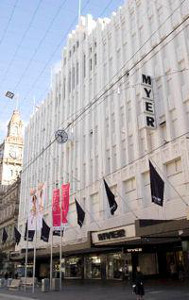
mossie = An abbreviation of “mosquito” (also spelt “mozzie”).
mucking around = Wasting time, dawdling, mucking about, doing little of nothing. Similar to “faffing around”.
muddies = Mud crabs.
nana = A banana. Distinct from the word “nanna”, which means “grandmother”.
Ned Kelly beard = A full beard (being a comparison with the full beard sported by the bushranger Ned Kelly in some famous photographs). See: IAC list on Trove.
no dramas = Not a problem, it’s all okay, everything is fine, this is not a drama (i.e. not a dramatic event). Similar to “no worries”.
noggin = Head; e.g. “Shut up, or I’ll bonk you on the noggin” (i.e. “Be quiet, or I’ll hit you on the head”).
not bad = Something which is good; e.g. “She’s not bad looking”.
not much chop = Not very good; e.g. “the car is not much chop, but it gets you from A to B”.
not the full quid = Someone who is perceived to be lacking in intelligence, a person who is not very bright; refers to lacking enough coin to make up a full quid (dollar or pound); similar to “He’s only fifty cents to the dollar” and “a few cents short of a dollar”.
not too flash = Not very good.
not worth a cracker = Something that is worthless, or close to worthless; may come from the worth of a cracker (biscuit), but possibly from the term “cracker” that denoted a clapped-out or near-worthless cow or sheep. Similar to the phrase “not worth a brass razoo”. [See also: brass razoo]
no worries = Not a problem, it’s all okay, everything is fine, don’t worry about it, that’s okay. Similar to “no dramas”. Can be used as an acknowledgement of thanks; e.g. “Thanks for all your help” “No worries, mate”.
no wuckin’ furries = An adaptation of “No fuckin’ worries”. To pronounce this properly, the word “furries” should rhyme with “curries”, “durries”, “flurries”, or “worries”. [See: no worries]
no wuckers = Not a problem; an adaptation of “No wuckin’ furries”. [See: no wuckin’ furries]
nuddy = Nude, unclothed; e.g. “I went down to the creek yesterday, and there was a shiela swimming in the nuddy”. [See also: starkers]
ocker = An uncultured rough Australian man, usually of a lower socio-economic class. Often depicted as someone with a strong Australian accent, who swears, drinks a lot of beer, and who has very few social graces; stereotyped as wearing (in the heat) shorts, blue t-shirt, and thongs (footwear), with a tinnie or a stubbie of beer in his hand.
office bike = A woman who is sexually active with many men, i.e. gets “ridden” a lot (like a bike). Similar to the term “town bike”; e.g. “She’s the town bike”.
off like a bride’s nightie = To depart very quickly; e.g. “He took off like a bride’s nightie”.
one-armed bandits = In earlier times, poker machines were called “one-armed bandits”, because they had a lever (an arm; which customers used to pull down to operate the machine), and they “stole” your money (like a bandit); however, in modern times, the machines use buttons instead. [See also: pokies]
on the piss = Drinking alcohol, or drinking alcohol excessively.
on the turps = Drinking alcohol excessively; similar to the phrases “on the grog”, “on the piss”, and “on the sauce”. The word “turps” is an abbreviation of “turpentine”, and refers to the practice of very badly-off alcoholics (winos) sinking to the low level of drinking turpentine (containing terpene alcohols) or methylated spirits (denatured alcohol), as a cheap alcoholic beverage (in spite of the dire health consequences).
onya = “on you”, an abbreviated form of “Good on you”; e.g. “Good onya for saving that kid from drowning”. Can also be used in a sarcastic or negative sense; e.g. “Onya dickhead, you pranged my car”.
oo roo = Goodbye. Also spelt “ooroo”. Similar to “hoo roo”. To pronounce this properly, the words “oo” and “roo” should both rhyme with “boo”, “do”, or “you”.
opinions are like arseholes, everyone’s got one = A phrase used to denigrate someone’s opinion.
OS = Abbreviation for “overseas” (i.e. a reference to foreign countries). Also spelt “O/S”.
Outback = Remote rural areas; sparsely-inhabited back country. Also spelt: out back, outback, out-back, Out Back, Outback, Out-Back (with and without capital letters).
owyagoin = Strine for “How are you going?” Although the phrase means “How are you?” or “How are you faring?”, it normally is just a way of saying “Hello”, with an expectation of a brief response, such as “All good, mate” or “Yeah, going well, thanks”. However, depending on the context, the phrase may actually mean “How are you going?”, with an expectation for the person to say how they are feeling, such as when visiting a patient in a hospital.
parma = A parmigiana. Also rendered as “parmi” or “parmo”.
pash = Passionate kissing of a long duration.
perve = To surreptitiously check out (look at) a good-looking member of the opposite sex; used in the context of looking at someone in a public or community area (i.e. distinct from stalking or being a Peeping Tom).
petrol station = A service station, where vehicles can be filled up with petrol. [See: servo]
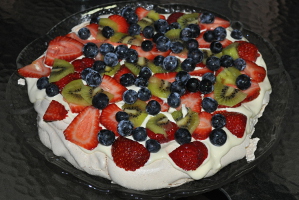
pick the eyes out = To acquire the best parts of something; e.g. “We were all offered some free apples, but he got there first, and picked the eyes out”; in early usage from the squattocracy’s practice of picking out the best bits of land, leaving only less worthy land for the rest.
piece of piss = Really easy, very easy; e.g. “For the test, all we had to do was name the states of Australia; it was a piece of piss”. Similar to “easy as pie”.
piss = Beer. Derived from the taste of beer, which is said by some to taste like piss (urine).
pissed = [1] Drunk, inebriated, intoxicated, badly affected by drinking alcoholic drinks (also known as being: blotto, fried, hammered, plastered, smashed, sozzled, stinking drunk, wasted).
pissed = [2] An abbreviation of “pissed off”. [See: pissed off]
pissed off = Annoyed, irked; e.g. “I’m pissed that he took the last packet of chips; I really wanted those”. Similar to “browned off”, “cheesed off”.
pissed to the eyeballs = Very drunk; e.g. “He left the pub, pissed to the eyeballs”. See: IAC list on Trove.
piss off = An offensive or rude way to say “go away”, “rack off”. Similar to “fuck off”.
piss up = A party, involving lots of “piss” (booze, alcoholic drinks) ; e.g. “We’re going round to Davo’s for a piss-up”. (Can be spelt with or without a hyphen.)
Pitt Street farmer = A businessman or investor who buys or invests in a farm or agricultural business (Pitt Street is a street in Sydney associated with businessmen); the Victorian version is a “Collins Street farmer” (after a street in Melbourne associated with businessmen, particularly with medical professionals).
pleb = An abbreviation of “plebian”. An average person, a common person, an ordinary person, a lower-class person, a member of the working class, a commoner, a peasant; someone who is poor, unrefined, unsophisticated, or uncultured; e.g. “How would I know how to do that advanced stuff? I’m just a pleb!”
Point Percy at the porcelain = To urinate (“Percy” is slang for a penis). The phrase was made up by Australian comedian Barry Humphries, to use in his “Barry McKenzie” cartoon strip in Private Eye (UK); e.g. “Now listen mate, I need to splash the boots. You know, strain the potatoes. Water the horses. You know, go where the big knobs hang out. Shake hands with the wife’s best friend? Drain the dragon? Siphon the python? Ring the rattlesnake? You know, unbutton the mutton? Like, point Percy at the porcelain?” (Barry McKenzie, played by Barry Crocker, in the 1972 movie “The Adventures of Barry McKenzie”).
point the bone = To wish ill upon someone; from the practice of Aboriginal “witch doctors”, who would point a bone at someone in order to place a curse upon them.
pokies = Poker machines; or, a venue which provides poker machines as a major form of entertainment. The early poker machines typically displayed pictures of playing cards on their reels, and they paid out for winning card combinations (customers were, in effect, playing a form of poker). In the US, poker machines are called “slot machines”. [See also: one-armed bandits]
pollie = A politician.
pom = An English person. Used in reference to a person from England, or an item of English ethnic origin (e.g. an English cricket team, an English fish and chip shop). English people are also called “pommies”. If an English person complains or whinges too much, they are likely to be called a “whinging pom” (a common expression). The term “pom” is thought by some to be derived from “Prisoner of Mother England”; however, proof for that assertion is lacking (the etymology is pretty suss).
pommie = [See: pom]
pong = A bad smell; e.g. “Jesus H. Christ! That old food pongs!”
poo jabber = A male homosexual; a poofter. So called because of the functionality of how male homosexuals have sexual intercourse.
popular as a Jew in Germany = A reference to someone who is not very popular; e.g. “The women are all avoiding him; he’s about as popular as a Jew in Germany” (derives from the treatment of Jews in Germany during the period of the Third Reich).
postie = An abbreviation of “postman” (someone who delivers letters, bills, etc. to your letterbox). In modern Politically Correct times, it could also mean “post-person”; but, to be fair, female posties are rather rare.
prang = An accident, usually referring to a vehicular accident (especially regarding a car or a bike); e.g. “He went too fast down the hill, and pranged his bike”.
preggers = An abbreviation of “pregnant”; e.g. “I saw Tanya the other day, and she was fully preggers”.
pressie = An abbreviation of “present” (a gift); e.g. “I got some pressies for Chrissie from the relos”.
put the bite on = To ask someone for money; e.g. “He put the bite on her for a loan”.
pull your head in = Shut up and mind your own business.
put the fangs in = To ask someone for a loan, to attempt to borrow money. Similar to the phrase “put the bite on”.
Queensland: beautiful one day, perfect the next = An advertising catchphrase for the Queensland tourist industry. Often turned around for other purposes; e.g. “John Smith: dumb one day, stupid the next”. Similar to “a rooster one day, a feather duster the next”.
rack off = A phrase used to tell someone to go away, usually while in a dispute or disagreement; e.g. “Just rack off, you idiot!” [See also: go soak your head; piss off]
ranga = A red-haired person, a redheard. Derived from “orangutan”, a type of ape whose body is covered with reddish-brown hair.
rapt = An abbreviation of “enraptured”. Very happy, extremely pleased, really excited.
reckon = Believe, think, estimate; e.g. “I reckon Carlton’s a better team than Collingwood”. Also used as a term of agreement; e.g. “Four ’n’ Twenty pies are the best” “Yeah, I reckon!”
refo = An abbreviation of “refugee”; can also be spelt as “reffo”; e.g. “Another boatload of refos landed on the north coast yesterday”.
reg grundies = [See: grundies]
rego = An abbreviation of “registration”, especially used to refer to a car rego.
relo = An abbreviation of “relative” (i.e. someone in the family); e.g. “I’m going to see the relos at Christmas”.
rent-a-root = An easy woman, a wanton woman, a sexually promiscuous woman. A woman who has a reputation for being eager to engage in sexual intercourse. [See also: root rat]
ridgy-didge = Genuine, authentic, honest, on the level, correct, true; e.g. “that bloke’s a ridgy-didge Australian” (meaning: authentic, genuine), “that good-looking sheila cracked onto me, ridgy-didge” (meaning: honest; I’m not lying). Also spelt “ridgie didge”. [See also: fair dinkum]
righto = Alright; yes. Can also be used when telling someone to stop what they’re doing; e.g. “Righto, mate, that’s enough!”
ripper = Something really good, great, fantastic. Used in the phrase “You little ripper!” (during the 1980s a common usage was “Ripper, Rita!”, a phrase which was used in a television advertisement). “You little ripper!” is similar to the phrase “You little beauty!”
Robbo = Robert. This is part of the Australia tradition of giving various names an “o” suffix; e.g. Davo, Jacko, Johno, Robbo, Stevo, and Tommo (David, Jack, John, Robert, Steve, and Tom).
rock up = To show up, to turn up, to make an appearance at a place; e.g. “Shirelle was having a party at her place last night, so I rocked on up and had a good time”.
ron = A contraction of “later on”; e.g. “I’ll save this drink for Ron”; this is a play upon words, used as if the speaker is keeping something aside for someone named “Ron” (Ronald), when the item is actually being kept aside to be used later on.
ropeable = Extremely unhappy, very angry. Derived from someone being so angry, that you would have to tie them up with rope to stop them from committing a violent act against the person who wronged them.
roo = An abbreviation of “kangaroo”.
root = Sexual intercourse. This term appears in the double entendre joke about Australian men — Question: What Australian animal is most like an Australian man? Answer: The wombat, because he eats, roots, and leaves (i.e. also referring to a wombat, being a herbivore, which eats roots and leaves). This is probably why some Australians chuckle to themselves a bit when Americans talk about their teams (e.g. “I root for the Broncos”) or their roads (e.g. Route 66).
rooted = [1] Tired, exhausted; e.g. “I worked for eighteen hours straight, I’m rooted!”
rooted = [2] Broken, stuffed, not working “I just can’t get the car to start, the damn thing’s rooted!”
root rat = An easy woman, a wanton woman, a sexually promiscuous woman. A woman who has a reputation for being eager to engage in sexual intercourse. [See also: rent-a-root]
rough as guts = Someone who appears to be uncouth, uncultured, and lacking social refinement; e.g. “Look at that sheila burping, farting, and carrying on; geez, she’s as rough as guts”.
rough end of the pineapple = Used in reference to someone getting a raw deal. For example, when it comes to fashionable clothing, “Big blokes have always had the rough end of the pineapple” [ref.].
rubber = An eraser (i.e. an item used to erase pencil markings from paper). Erasers were made from natural rubber, so it was logical for them to be called “rubbers”, and for the process of using them to remove marks to be called “rubbing out” (e.g. “I made a mistake on that paper, so I’ll just rub it out”). Australian interactions with Americans can get confusing over this term, as a “rubber” in the US refers to a condom (some Americans have been shocked to learn that the contents of some showbags for young children included pencils and rubbers). To make matters worse, Americans use the phrase “rub one out” to refer to masturbation, so matters can get even more confused. Dealing with Americans on this issue can be enough to rub people the wrong way.
running round like a blue-arsed fly = Very busy.
Salvos = A Salvation Army store (an opportunity shop); e.g. “I’m just going to the Salvos, to see if I can pick up a jacket”. Also, “Salvos” refers to members of the Salvation Army (singular: Salvo). As a group, the Salvation Army are known as “the Salvos”.
sammidge = A sandwich.
Sandgropers = Western Australians. A term arising from the vast sandy deserts of Western Australia; also, “sandgroper” is the name of a burrowing insect found in Western Australia, belonging to the Cylindrachetidae family. Also abbreviated as “Gropers”.
sanga = A sandwich. Also spelt “sanger”. Less common alternatives are “sambo”, “sammo”, “sammie”, and “sango”.
sanger = A sandwich. [see: sanga]
sangwidge = A sandwich.
sarnie = A sandwich.
sarvo = An abbreviation of “this afternoon” (“this arvo”).
sausage sizzle = An event where sausages are cooked on a barbecue, grill, or metal cooking plate, usually conducted as a fundraiser, and often seen at fairs. The sausages are typically placed inside a piece of buttered bread, with tomato sauce and onions offered as optional extras. The hardware chain Bunnings Warehouse have become well-known for allowing charities and local groups to hold sausage sizzles outside of their stores (especially on weekends and public holidays); sausage sizzles have also been conducted at or near polling places during elections in Australia.
scab = Someone who works whilst their fellow employees are on strike, someone who takes over a striker’s job, non-union labour used as strike-breakers. The term derives from the employment of Chinese as non-union labour and strike-breakers (i.e. they were often hired to work during a union strike, or to work in spite of work bans); Chinese were regarded as being linked with the spread of leprosy, and as that disease can make the skin appear scabby, Chinese non-union labour and strike-breakers were called “scabs”. Scabs are also known as “blacklegs”.
schoolies = The school leavers’ end of year celebrations, as in “Schoolies Week”.
ScoMo = Scott Morrison, who was the Prime Minister of Australia (2018- 2022).
Send her down, Hughie! = A light-hearted thanks to God for making it rain, inclusive of a request to make the rain continue (the intent is something like “Good on ya, God, for making it rain; keep up the good work”). Also rendered as “Send ’er down, Hughie!” or “Send it down, Hughie!”
seppo = An American (someone from the USA). From the rhyming slang of “septic tank” for “Yank”. Americans are also called “septics”.
septic = An American (someone from the USA). From the rhyming slang of “septic tank” for “Yank”. Americans are also called “seppos”.
servo = An abbreviation of “service station”; also known as a petrol station (the word “petrol” is derived from “petroleum”). In the US, “petrol” is known as “gas” (“gasoline”); whereas, in Australia, gas is known as “gas”.
settler’s alarm clock = A kookaburra, a type of Australian bird which calls loudly in the morning (with a noise which sounds like a laugh).
shaggin’ wagon = A panel van, often laid out with carpet, and with curtains fitted over the windows of the back compartment, so as to make it a suitable place for intimate couplings. Also known as a “fuck truck”, a “root ute”, or a “sin bin”. The word “shagging” refers to sexual intercourse.
shattered = Very tired, exhausted. Similar to “buggered”, “knackered”, “stonkered”.
Shazza = Sharon. This is part of the Australia tradition of giving various names a “zza” suffix; e.g. Bazza, Gazza, and Shazza (Barry, Gary, and Sharon).
sheila = A woman. On the other side of the coin, a man is known as a “bloke”.
she’ll be apples = Everything will be alright, everything will be apples. Taken from the rhyming slang “apples and spice” for “nice”. Also rendered as “everything’s apples” or “it’s apples”. Similar to the phrase “She’ll be right”. [See also: jake]
she’ll be right = Everything will be alright. Similar to the phrase “She’ll be apples”.
Shep = Shepparton (a regional city in Victoria).
shirt lifter = A male homosexual; a poofter. So called because male homosexuals would have to lift the tail end of a shirt to access a man’s rear end so as to have sexual intercourse (sodomy). In earlier days, the tail end of shirts were quite long; however, due to wartime rationing during the First World War (1914-1918), the length of shirt tails were reduced considerably.
shit, shower ’n’ shave = A somewhat crass terminology used in reference to a bloke getting ready (especially in the morning). Also known as “the three Ss”.
shithouse = [1] Toilet (crapper, dunny, loo, water closet). Originally a reference to an outdoor toilet (an “outhouse”).
shithouse = [2] No good; e.g. “that car is useless, it’s shithouse”. From a reference to an outdoor toilet.
shonky = Dishonest, no good.
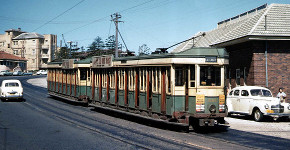
shout = To buy drinks for others; to buy a round of drinks, especially in a pub; e.g. “You stay there, I’ll get the drinks, it’s my shout”.
sick = Awesome, great, fantastic; e.g. “That’s fully sick, mate”.
sickie = A day off work, claiming to be sick whilst not being ill at all (falsely claiming sick leave); e.g. “I was feeling a bit hung-over from last night, so I chucked a sickie”.
silly season = The Christmas season (when they are lots of parties, and people can become a bit silly).
Skips = A derogatory term for Australians of British ethnicity; a term that originated with those of Southern European ethnicity to refer to Anglo-Australians. Derived from the name of the Australian television series “Skippy”, about a kangaroo. Singular: “Skip”.
skite = Boast; e.g. “He was skiting about how good he is at footy”.
skull = To imbibe a drink in one go, to drink the entire contents of a glass of beer in one try; e.g. “That’s a nice beer on a hot day, let’s see ya skull it, mate”. Often the other drinkers at the same table will start to chant “Skull, skull, skull, skull!” as the drinker starts to drink the beverage in one go (similar to the “Chug!” chant used in the US).
slab = A 24-pack of cans of beer.
slant-eye = An Asian person (a derogatory term).
slopehead = An Asian person (a derogatory term).
smoko = A break in the working day, when workers can smoke a cigarette (or have a drink, or just have a short break or rest). By extension, it can also refer to a tea break for non-smokers. Can also be spelt: smoke-o, smoke-oh, smokeho.
snag = A sausage; e.g. “Put another snag on the barbie, will ya love?” (plural: “snags”).
sneakers = A type of footwear, also known as “runners” or “trainers”.
sook = [1] To sulk; e.g. “He didn’t get picked for the footy team, so he’s having a bit of a sook”.
sook = [2] Someone who is regarded as whiner, a bit of a namby-pamby; e.g. “Don’t ask him to play, he’s a bit of a sook”.
sparky = An electrician. Also spelt “sparkie”.
spat the dummy = To have a tantrum, get angry, be of bad temper; e.g. “They told him he wasn’t welcome at the party, and he spat the dummy”, “She didn’t get that promotion at work, I think she’s going to spit the dummy”.
Speewah = Somewhere very far away. [See also: Bandywallop]
spew = To vomit, to throw up, to up-chuck.
spewin’ = Angry, very upset, not very happy; e.g. “When that idiot crashed into my car, I was spewin’”. Derived from “spewing” (i.e. vomiting).
Spew-mante = A humorous reference to Spumante (also known as Asti Spumante). a sparkling white wine (from the Piedmont region of Italy), which had a reputation as a cheap wine, which you could drink until you spewed (vomited).
spunk = A handsome man, a sexy man. Distinct from the British slang term “spunk”, which refers to semen.
spit the dummy = Have a tantrum, get angry, be of bad temper. [See also: spat the dummy]
squizz = To look at something; e.g. “There’s something going on at the park, I’m just going over to have a sqizz.” Also spelt “squiz”.
stacks on = A phrase used when people jump on top of each other, typically used by kids; e.g. when some kids are on the ground tussling over a football, a nearby kid yells out “Stacks on!”, and all the other kids nearby jump on top of the scrum.
starkers = Nude, unclothed. [See also: nuddy]
Stevo = Steven, or Stephen. This is part of the Australia tradition of giving various names an “o” suffix; e.g. Davo, Jacko, Johno, Robbo, Stevo, and Tommo (David, Jack, John, Robert, Steve, and Tom).
sticky beak = [1] Someone who is curious about someone else’s business, when it’s actually none of their business. Someone who wants to know what you are doing (with the inference that the attention is unwanted or unwarranted). Being a “sticky beak” is similar to being a “nosey parker”.
sticky beak = [2] Having an unwarranted look into someone else’s business; e.g. “I saw you looking in through my window; having a good sticky beak, were ya?”
stick your beak in = To interfere; e.g. “Don’t bloody stick ya beak in; it’s none of your beeswax”.
stick your bib in = To interfere; e.g. “Who asked you to stick your bib in?”
stiffy = An erection. [See also: crack a fat]
stinker = A very hot day; e.g. “Geez, it’s a real stinker out there”, “It’s stinking hot”, “It’s a stinker of a day”. Distinct from the British term “stinker”, which refers to someone who is not very nice.
stoked = Excited, exhilarated, happy, pleased; e.g. “He was stoked when he won the raffle”.
stone the crows = A phrase used when surprised; e.g. “Stone the crows! I didn’t know that was going to happen”.
stonkered = Very tired, exhausted. Similar to “buggered”, “knackered”, “shattered”.
stoush = A fight or brawl; e.g. “They had a real stoush at the back of the pub”.
Straya = The Strine name for the Land Down Under (because of how Aussies pronounce “Australia”).
strewth = An alternate spelling of “struth”. [See: struth]
Strine = A name for the Australian language (i.e. Australian words, phrases, slang, jargon, idioms, and colloquialisms), or the way Australians speak. Derived from the way in which some Australians pronounce the word “Australian” (which becomes “Ostralian”, “Strayyan”, or “Strine”).
struth = An exclamatory oath; e.g. “Struth, mate, that sheila you’re going out with is a bit of alright”. Also spelt “strewth”. “Struth” is a contraction of “God’s truth”; in older times, it was also rendered as “Gawstruth” or “Gorstruth”.
stubbie = A short bottle of beer (also spelt “stubby”).
stubbie-holder = A polystyrene or foam insulated holder in which a cold stubbie can be placed, so that the stubbie doesn’t make the drinker’s hand too cold (a stubbie-holder can also be used for cold cans).
a stubbie short of a six pack = Someone who is lacking in intelligence, someone who is a bit mentally slow, someone who is a bit slow on the uptake; e.g. “That bloke’s a bit odd; he’s a stubbie short of a six pack”. Can also refer to someone who is perceived to be a bit mad or crazy. Similar to “a few cents short of a dollar”, “a few sandwiches short of a picnic”, “a few sangers short of a barbie”, and “a couple of lamingtons short of a CWA meeting”.
stubby = [See: stubbie]
stuffed = [1] Full up; ate my fill; I have had an elegant sufficiency of food; e.g. “Barry didn’t want his share of the pizza, so I ate the lot; mate, I’m stuffed”.
stuffed = [2] Exhausted, tired, very worn-out; e.g. “I just jogged for ten miles, I’m stuffed!” Similar to “rooted”.
stuffed = [3] Broken, no good, rubbish, ruined; e.g. “Cyclone Tracy roared through Darwin; the city was stuffed”; “there was a ten car pile-up on the highway; traffic ground to a halt; the whole situation was stuffed”.
stuffed = [4] Bothered; e.g. “I was going to write a fair bit for this entry, but now I can’t be stuffed”.
stunner = Beautiful, good-looking; e.g. “She’s a dead set stunner”. Used to describe a woman who is very beautiful (a somewhat hyperbolic term, it refers to a woman who is so good-looking, that just to look at her would stun a man senseless).
sunnies = An abbreviation of “sunglasses”.
sus = Suspicious; something worthy of suspicion; someone or something thought to be a bit dodgy or dubious; e.g. “I’m a bit sus of the tyres on my car, I think they’re no good”, “I think that used-car dealer is a bit sus”. Also rendered as “suss”.
sus it out = Check it out, check on something, look at something, investigate; e.g. “That new pub looks alright, I think I’ll sus it out”.
swag = A swagman’s bundle, being a number of personal belongings rolled up in a piece of calico, tent-fly, or blanket, secured tightly together (e.g. with rope or straps), or placed inside a cloth bag (such as a flour sack). Swags were hung from the shoulder, making them easy to carry whilst their owners tramped many miles; a swag was also commonly referred to as a “Matilda”, “drum”, or “bluey” (from the colour of the blankets, which were often blue).
sweet as = Awesome, fantastic, really good, terrific; e.g. “I just bought a new car, it’s sweet as!”
ta = Thank you.
ta-ta = Goodbye, see you later. Sometimes expressed as “Ta-ta for now” (meaning “I am leaving now, but I will catch up with you another day”).
tacker = A small child, often used as part of the phrase “little tacker”. [See also: ankle biter]
Taswegians = Tasmanians.
tea = Dinner, the last meal of the day.
technicolour yawn = To vomit, to throw up, to up-chuck, to spew.
thong = Open-toed footwear (similar to sandals, but made from rubber, and much cheaper), designed to be used in hot weather, especially at the beach. The Australian usage of the word is different to the American usage of “thong”, which refers to a skimpy piece of underwear (Australians also call that type of clothing a “thong”; however, they are well aware that there are two main types of thong, one for footwear and one for underwear). Americans refer to thongs (the footwear) as “flip-flops”, which is why Americans in Australia can get confused when they’re told that everyone will be wearing thongs at the beach.
Thorpedo = Ian Thorpe, the famous swimmer.
Thorpie = Ian Thorpe, the famous swimmer.
tinnie = A can of beer (also spelt “tinny”). [See also: crack open a tinnie]
toastie = An abbreviation of “toasted sandwich”, being a snack or meal made by toasting two slices of bread together with some savoury filling, such as ham and cheese, cheese only (cheese toasties are great), baked beans, spaghetti, or whatever takes your fancy. With the invention of the jaffle iron, “toasties” also became known as “jaffles”.
toey = Restless; e.g. “He was pretty toey about having to stay inside all day”.
togs = Bathers, swimsuit.
tomato sauce = A sauce which has tomatoes as its primary ingredient (known in the US as “ketchup”). [See also: dead horse]
Tommo = Tom or Thomas (or the surnames Thomson or Thompson). This is part of the Australia tradition of giving various names an “o” suffix; e.g. Davo, Jacko, Johno, Robbo, Stevo, and Tommo (David, Jack, John, Robert, Steve, and Tom).
too right = Used as a confirmation or an acceptance; e.g. “Am I an Aussie? Too bloody right I am!”, “Do I wanna go down the pub? Too right I do mate”.
Top Enders = People from the Northern Territory; Territorians.
tough as fencing wire = Someone or something that is very tough.
trackies = Tracksuit, tracksuits; e.g. “Let’s go for a run together, get ya trackies on”. Can be used regarding a single tracksuit or multiple tracksuits. [See also: tracky dacks]
tracky dacks = Tracksuit pants, tracksuit trousers.
tradie = A tradesman, a tradesperson; e.g. a carpenter (a chippie), an electrician (a sparky), a plumber (a dunny diver).
troppo = To go crazy, loony, mad; to be mentally disturbed; acting strangely; e.g. “I think that bloke’s been out in the sun for too long, he’s acting troppo”, “Watch out, he’s gone troppo!” Derived from the phrase “tropical fever”, used during the Second World War, when Australian soldiers in the Pacific theatre believed that long exposure to the heat and tropical conditions could make someone go mad.
truckie = A truck driver.
true blue = Someone or something which is regarded as genuinely Australian, truly Australian, or very Australian; e.g. “That bloke’s a true-blue Australian” (can be spelt with or without a hyphen). Distinct from the British usage of the term, where “true blue” refers to something related to the conservative side of politics. [See also: dinky di]
tucker = Food.
tucker bag = A cloth bag used for carrying food
tucker box = A box to store food in (as well as cutlery, plates, mugs, napkins, etc.) Also spelt “tucker-box”, “tuckerbox”.
two-pot screamer = Someone who gets drunk very easily; someone who gets drunk after drinking just two pots of beer (a “pot” of beer is a 285ml glass of beer, which is about half of an imperial pint).
two-up = A gambling game in which two coins are tossed (or spun) into the air, from a flat piece of wood, and bets are made on the outcome, as to whether the coins will land heads up, tails up, or one of each.
u-ey = A U-turn; e.g. “Stevo was heading north, but then he chucked a u-ey and went south”. Also spelt “yewy”.
ugly tree = A negative reference to someone’s looks; e.g. “She fell out of the ugly tree” (can also can be given in a longer form, such as “He fell out of the ugly tree, and hit a few branches on the way down”).
Uni = University.
Up a gum tree = In dire trouble, in a quandary. Similar to the phrase “Up shit creek without a paddle”.
Up shit creek without a paddle = In dire trouble, in a quandary.
up the duff = Pregnant; e.g. “She’s only been married for six months, and she’s up the duff already”. Similar to the phrase “Bun in the oven” (e.g. “She’s got a bun in the oven; the baby’s due in three months”), or “knocked-up”.
up yourself = Full of yourself, full of one’s own importance, stuck up, arrogant. Used regarding someone who thinks very highly of themselves; e.g. “You think you’re so great; you’re really up yourself, aren’t ya?” [See also: got tickets on yourself]
use your loaf = Use your head, think clearly; e.g. “Go on, have a think about it, use your loaf”.
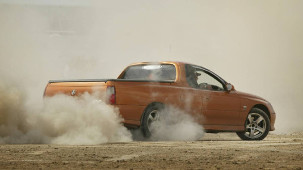
Vandemonians = Tasmanians. The term contains an implied insult, by being a reference to the time when Tasmania was known as Van Diemen’s Land, when it was still taking in convicts from Britain (the island, discovered by the Dutch explorer Abel Tasman, was originally named after Anthony van Diemen).
W.A. = an abbreviation of Western Australia (a colony from 1829, then a state in 1901; previously known as the Swan River Colony). Usually the other states of Australia aren’t referred to by their initials; WA holds that distinction.
Wagga = Wagga Wagga (a regional city in New South Wales). Australians can’t be stuffed to say the same word twice, so Wagga Wagga is commonly shortened to Wagga.
walkabout = To head off somewhere without telling people where you’ve going; to travel aimlessly; e.g. “I haven’t seen Davo in ages, I think he’s gone walkabout”. Derived from the practice of young male Aborigines “going walkabout”, heading off into the wilderness, to live alone for several months, as a rite of passage.
Wang = Wangaratta (a regional city in Victoria).
wanker = An idiot; someone who is arrogant (also known as a “tosser”). A variation in meaning of the term “wanker”, referring to a male who engages in “wanking” (masturbation).
Want a lift? Drink Bonox! = An advertising slogan for Bonox drink; subsequently used in a jocular teasing fashion to give hitchhikers false hope of getting a lift; e.g. “Hey mate, want a lift? Yeah? Well, drink Bonox!”
Warnie = Shane Warne, the famous cricketer.
Westie = Someone who lives in the western suburbs of Melbourne or Sydney (plural: “Westies”). Westies are stereotyped as being uncouth, uncultured, poorly educated, of a lower socio-economic class, and potentially violent. [See also: bogan; larrikin]
wet enough to bog a duck = Very wet; e.g. “It had rained that much, the ground was wet enough to bog a duck”.
What’s the John Dory? = (rhyming slang) “What’s the story?”, i.e. “What’s going on?” or “Tell us the goss” (gossip). John Dory is a type of fish which can be found on the Australian coast.
Where did you get your license? Out of a Cornflakes packet? = A phrase used against incompetent car drivers (the imputation being that their driving is so bad that they couldn’t have got their license by being a good driver and passing a driving test; a reference to when small toys were sometimes included in packets of cereal as promotional extras).
What else did you get for Christmas? = A phrase used against someone using an item too much; e.g. a car driver sounding his horn a lot (the imputation being that the driver was acting like a child who had received a present for Christmas, who would play with it a lot, due to the excitement of having just received a new toy).
whinge = To complain, moan, whine, especially used when there is little reason for complaint, when there is no point complaining, or when the matter seems trivial; e.g. “Geez, he’s really having a good whinge, isn’t he?” Sometimes whingers may be asked “Would you like some cheese with your whine?”
whinger = Someone who excessively complains, moans, whines, or whinges. [See: whinge]
whopper = A reference to something big; e.g. “Blimey, that cow’s a whopper!”
Widgies = Females involved in an uncouth and loutish 1950s youth sub-culture. [See: Bodgies and Widgies]
wog = [1] Generally a person of Southern European or Mediterranean ethnicity, although it can also be applied to other non-Anglo European foreigners; usually derogatory, but sometimes used in a friendly manner. The Australian usage differs to the British usage of the term, where “wog” refers to people of Central Asian ethnicity (people from Bangladesh, India, Pakistan, etc.).
wog = [2] A bug (germ); e.g. “He caught the wog” (i.e. he was ill with a stomach bug). Also used as a play upon words; e.g. “She’s been in bed with a wog” (referring to someone being ill, but with a double entendre of being in bed with a person of Southern European or Mediterranean extraction).
Woop Woop = Somewhere very far away. [See: “Bandywallop]
Wozza = Warren, or Warwick.
wuss = Someone who is cowardly, usually referring to males.
ya = The Strine pronunciation of “you”.
yarn = Chat, talk. Can also refer to a long story, especially with adventurous and interesting components.
yewy = A U-turn; e.g. “Stevo was heading north, but then he chucked a yewy and went south”. Also spelt “u-ey”.
yonks = A long time; e.g. “I’ve known him for yonks”.
youse = You all; you guys. Similar to the term “ya’ll” (“you all”), as used in the southern states of the USA.
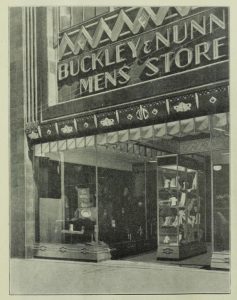
Terms used in Australia which are of overseas origin
Some common vernacular words and phrases used in Australia are actually derived from, or directly taken from, overseas usage. Since a few people have suggested some of these terms for this list, believing them to be Australian, several of them have been included here with an appropriate notation (e.g. “This term is believed to be British in origin”).
However, the origin of phrases can sometimes be murky or unclear; whereas today the earliest known instance of a term may be from an overseas country, tomorrow a new source may be discovered which shows the earliest known instance to be from Australia (of course, if a foreign source for a term predates 1788, then Australia will be out of the running for that one).
acting the goat = Behaving in a foolish or silly manner. This term is believed to be Irish in origin. The first known instance of this phrase was a book by Henry Hartigan (an Irish soldier and VC winner). [ref.]
bun in the oven = Pregnant; e.g. “She’s got a bun in the oven; the baby’s due in three months”. Similar to the phrase “up the duff” (e.g. “She’s only been married for six months, and she’s up the duff already”). This term is believed to be British in origin. [ref.]
chalk and cheese = Used regarding things that are very different, although outwardly alike; e.g. “You can’t compare Holdens to Mazdas, they’re like chalk and cheese”. Similar to the phrases “apples and oranges”, “day and night”, “night and day”, “oil and vinegar”. This term is believed to be British in origin. [ref.]
fanny = A vagina (also known as: beaver, box, cherry, cooch, cunt, foo-foo, furry taco, honeypot, hot box, lady garden, lady parts, meat curtains, minge, muff, penis fly trap, pink parts, pussy, quim, sausage wallet, squeeze box, twat, vag, vajayjay). The Australian usage of the word is different to the American usage of “fanny”, which refers to a rear end (also known as: arse, booty, bum, derriere, patootie, rump, tush); this is why American “fanny packs” are called “bum bags” in Australia. This term is believed to be British in origin. [ref.]
gift of the gab = To be able to talk in an easy and confident manner; to be able to talk convincingly; to have a talent for speaking. This term is believed to be British in origin. The phrase dates back to the 1680s, so it is not Australian in origin. [ref.]
nosey parker = Someone who is overly inquisitive; someone who is curious about someone else’s business, when it’s actually none of their business; someone who wants to know what you are doing (with the inference that the attention is unwanted or unwarranted). Being a “nosey parker” (also spelt “nosy parker”) is similar to being a “sticky beak”. This term is believed to be British in origin. The phrase possibly refers to Matthew Parker (1504-1575), Archbishop of Canterbury, who was known for poking his nose into the activities of his priests. [ref. 1, 2]
pinko = A Leftist, a Socialist. The term derives from the colour pink being a lighter shade of red; this is in relation to the term “Red” being used to refer to Communists (however, just to make things confusing, the term “pinko” is now sometimes used to refer to Communists as well). This term is believed to be US in origin. [ref.]
taking the piss = Used regarding someone taking a liberty, making a fool of someone, or saying something stupid; e.g. “Pumpkin tastes better than chocolate? Are you trying to take the piss out of me?”, “You borrowed my car to go to the shops, and then drove it for a thousand miles? Are you taking the piss?” This term is believed to be British in origin. [ref.]
Some notes on Australian place pronunciations
The way that Australians pronounce place names can be a bit hard for some people. Here are some tips to assist non-Australians:
Canberra = Not “Can-berra”, but “Canbra” (with a short “a” at the end).
Lalor = Locals pronounce it “Lay-lore”, even though the suburb is named after Peter Lalor (pronounced “Lawler”, just as it was phonetically spelt on his wanted poster).
Melbourne = Not “Mel-born”, but “Melbn” (the last part is like the word “bin”, but with the “i” removed).
See also: Types of language (an article regarding the defining of colloquial language, slang, idioms, jargon, and dialects).
Updated 28 July 2024
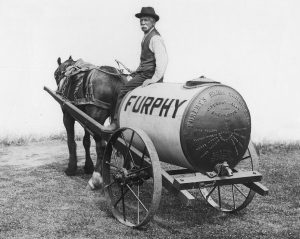

Can I correct/add to your phrase ‘She bangs like a dunny door’? The full phrase is ‘She bangs like a dunny door in a cyclone’. Makes a bit more sense than just she bangs like a dunny door!
Thank you for pointing that out.
The information for the entry “bangs like a dunny door” has now been expanded.
Or “in a Southerly” where I grew up.
No budgie smugglers ? Or fair suck of the sav. ( give us a go)
Also Bun in the oven ( pregnant)
Pissed to the eyeballs = drunk
I mentioned this in passing amongst some American friends. After explaining it they still don’t believe it is a legit phrase.
If your American friends still won’t believe you, here’s a brief list of examples of the phrase, sourced from newspaper articles, books, and internet pages:
phrase “pissed to the eyeballs”: https://trove.nla.gov.au/list?id=117007
Pissed to the eyeballs refers that you’ve drunk that much that the booze is up to your eyeballs. You’re really drunk if you’ve had that much.
what about furphy?
Spewin’ (adj) – objecting to a situation, place or thing causing the person to become vocally angry, agitated or upset.
“Ah spewin’ mate, can’t believe she took the last roll.”
Hello. I haven’t yet proceeded very far down the list here, but I have a comment about “arsey”.
Here is what you give as its meaning:
arsey = Someone who is considered lucky, e.g. “he’s an arsey bastard”.
I am ignorant of that usage for arsey.
My belief of that usage is that it means something like PUSHY, perhaps RUDE, perhaps ill-mannered.
So I looked at G.A. Wilkes’ “A Dictionary of Australian Colloquialisms”, and found support for my contention in this part of his entry:
ARSE: 1 Effrontery, ‘cheek’, as in the phrase ‘more arse than Jessie’ …
However, when I look at his second meaning, this seems to cover your given usage:
ARSE: 2 Equivalent to ‘tail’ (U.S.): sexual access to women; THE GOOD FORTUNE this implies. … (my emphases).
Raymond, I am familiar with this phrase from as long as I can remember growing up in country SA – especially common on the footy field! Definitely used as an expression of luck vs skill – as in ‘that was pure arse’. I have a vague recollection that it is an aussie variation of ‘pulling the rabbit out of the hat’ and a shortened version of ‘ …. pulled that one out of their arse’. lol 🙂
I too use it as luck. Example – “Gee they’re arsey!” I was born in QLD, grew up in Sydney. Lived outback NSW. Back to FNQ, down to Victoria and now live in WA and have, and still do use it as someone who is lucky.
Ha!
You missed one!
“The Budgie Smuggler!”
(Aussie Cossie)
There was also some slang relating to the Bondi Tram that I am unable to recall.
This was a Tram service that came out of Bondi Junction and went downhill along Bondi Road all the way to Bondi Beach.
Ahhh, the days of Dragon playing at the Bondi Hotel, opposite the beach.
Days of thunder and glory:)
Thanks.
That expression, maybe only in Sydney, was ” Shot through like a Bondi tram’,. Probably wanting to get the tram to the beach, the tram was always full, and it left without you.
Hi, what about “stick your beak in” or “nosey parker” and “knackers” & “knackered”
One correction and one addition…
Correction is ‘Give it a burl Shirl’ (probably related to ‘Shirley’ Strachan of the band Skyhooks)
Addition is ‘Dry as a dead Dingoes dong’
Thanks for your suggestions, Russell.
However, it should be noted that “give it a burl, Shirl” is a later variation (rather than a correction), as the phrase “give it a burl” dates back to at least 1911, as can be seen in the following list: https://trove.nla.gov.au/list?id=132373
It’s quite possible that the “Shirl” variation is connected with “Shirley” Strachan.
The earliest published example located for “give it a burl, Shirl” is from 2005. See the following list: https://trove.nla.gov.au/list?id=132374
Although, the variation probably dates back further than that, as part of verbal culture.
If it was connected with Strachan, it could date back to his Skyhooks days (beginning in the 1970s), or it could even be connected to his fame as host of the TV children’s show “Shirl’s Neighbourhood” (1979-1983).
Of course, it may well be that the variation has no connection with Strachan, and that it was just a rhyming variation of the original phrase – somewhat similar in style to “Hello Jack, how’s your back?”
And then there is ‘Spew-manti’ the usual reference for the cheap alcoholic bubbly Asti-Spumante of the 1970’s
What does “Don’t be an Uncle Willy” mean please?
Thanx
CJ
Don’t be silly.
Cockney rhyming slang, more than Australian? Not sure.
There is also ‘Don’t be a Billy’. Don’t be a silly billy. Mild admonishment.
Rhyming slang for silly
Australians don’t say ‘cobber’ that’s very Pommy! ‘Mate’ is what we say here.
The word “cobber” is quintessentially Australian (definitely not English); although it is now mainly used by much older Australians (just like the term “dig” to refer to a friend).
@James, from my experience ‘cobber’ is a generational thing, typically said by our older mothers and fathers who would have been born in the WWII era. Today ‘mate’ is more common as in Gday mate v Gday cobber
yes we do mate; I used it growing up in Tasmania through the 80s and 90s. You might also find that Alf Stewart used it quite regulary.
Top Enders = People from that area of the NT from Katherine north. Everyone else are Territorians!
Whoever complied this list has never been north of Victoria.. so much great stuff not included, this needs a complete overhaul. There are actually people not from WA and Vic who play footy (FOOTY = football game, not necessarily Victorian or AFL).
I owned acreage in Speewah, just out of Kuranda and didn’t know we were classed as that faraway from the rest of the world.. there ya go – onya!
how about doogs every kid playdem in the fifties n sixties called marbles as doogs or lets play a game of doogs
I would strongly suggest to remove this slang work from your dictionary.
Abo = Abbreviation of Aboriginal; not necessarily intended as a derogatory term, but in modern times it is now almost always regarded as derogatory, even if not intended as such.
Perv – having a secret look at someone and checking them out. Done quietly in the open, not spying in windows or anything like that. When I was in high school, the girls would say they liked perving at the boys during swimming carnivals etc.
some additions (from Victoria)
Ackers – Pimples (from Acne)
Runnin’ round like a Blue Arsed Fly – Busy
Charlie Wheeler = Sheila . (used by WW2 Anzacs)
the 3 S’s ( Shit, Shower & Shave) (also an old Anzac term)
Shaggin’ wagon = Panel Van
Clever Bastard = Smart Arse
Got tickets on yourself = Up yourself
Going for a Bushman’s = going for a crap while camping and cos you got no paper or dunny , you lean back & dump whilst holding a tree branch 🙂
Reminds me of the Oxy-10 ad: “Pimples, spots, ackers, call ’em what you like…” Is Ackers only a Victorian term?
“Steel Ackers” refers to studs on the nose or face that looked like ackers.
What about “Fuller than a fat chick’s knickers”
Played up like a second hand lawnmower/pocket watch. No good at all unreliable
Yabby pumped the bustard, then taught him the belmain folk dance
This list is a fascinating look at Aussie lingo, capturing the color and character of Australian English! From casual words like “arvo” to unique phrases like “Aussie salute,” it’s amazing how the language reflects everyday life and cultural quirks down under. Thanks for preserving these iconic expressions!